

One country, one city, a thousand possibilities...
University programs.
Choose from over 900 courses, in one of the most prestigious universities in Spain.
High School Programs
Summer travel is the most popular season for high-schoolers, get on board today!
Jr. High Programs
This is a special program just for Jr. High students and their teachers! Starting young has never been easier.
Faculty Programs
Faculty, just like students, sometimes need to brush up on their international and language skills.
Travel abroad to study in Salamanca for the most authentic experience of Spain.
Salamanca is a city of rare beauty with extraordinary and unforgettable sights.

University of Salamanca
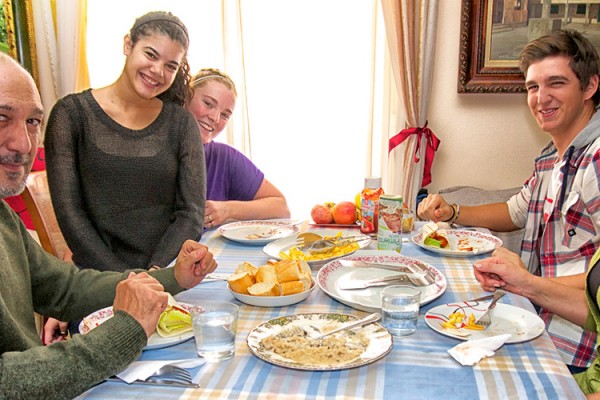
Housing & Accommodations
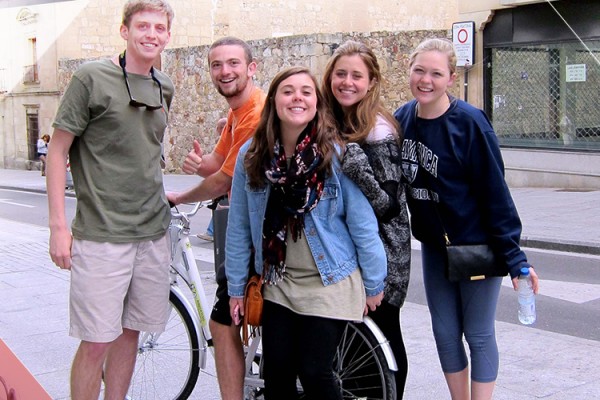
Student Life
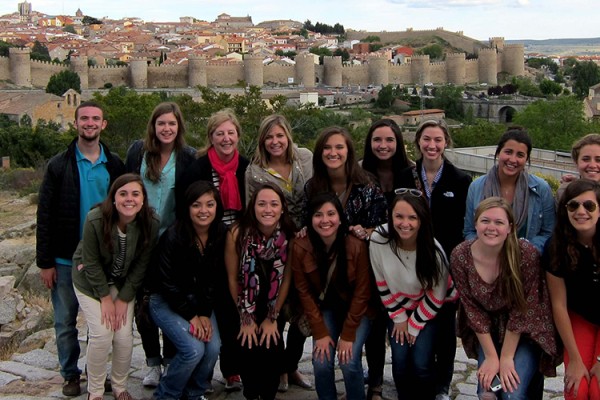
Safety & Medical
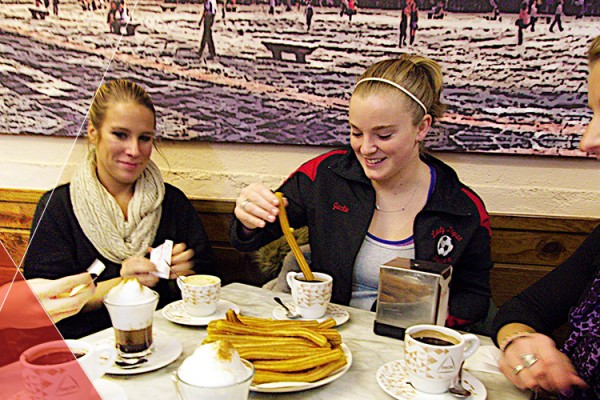
Connectivity
Annual enrollment, satisfaction rate, the year founded, starting cost per program, travel & education is an organization based in spain, providing for a more authentic experience for all of our students, ready to experience study abroad, what others are saying.
Outstanding program in Spain. Everything was amazing! The course, my host family, the professors, the excursions, were all phenomenal. The Philadelphia office was very easy to contact and the Salamanca team was extraordinarily attentive. Can’t wait to take students to Salamanca. Andrew Reaman , Parkland School District
I learned so much about Spain as a country, its history, language, culture, and literature. I learned how the people are and why they are the way they are. I learned the value of loving your country through the thick and thin. This program was more than worthwhile. I want to do it again, this time, I cant promise you that I will come back, I will just stay there forever. Gloria R. , Georgia State University
Study Abroad in Spain
Immersing yourself in the Spanish community is the best way to develop your language proficiency.
Travel & Education is an organization that offers a variety of Short-Term and Long-Term Study Abroad Programs for students and faculty. T&E is grounded in academic institutions that represent world-renowned universities, and offers the most value for your dollar.
Recent Reviews
- Thank you T&E to have made my dream come true July 27, 2017
- This was the best technology course for teachers June 13, 2017
- This trip changed my life August 9, 2016
- Awesome experience! February 28, 2015
The Immersive Revolution: How AR and VR Are Transforming Gaming
The ai advantage: transforming industries with machine learning, unlocking the future: the revolutionary impact of ai and machine learning, the intelligence age: navigating the impact of ai and machine learning.

The Harmony of Science and Technology: Preparing Students for the Future
The future is bright: encouraging young women in science, the globetrotting classroom: blending travel and education.
- Tourism & Entertainment

In today’s interconnected world, education extends beyond the boundaries of the traditional classroom. As an educator, I have witnessed the immense value that educational travel and learning journeys bring to students’ lives. The opportunity to embark on cultural immersion programs , study abroad experiences , and academic adventures allows students to broaden their horizons, deepen their understanding of different cultures, and develop important life skills .
Join me as we explore the concept of the globetrotting classroom, where travel and education intersect to create unique and enriching learning experiences. From the benefits of study abroad programs to the impact of educational field trips , we will uncover the transformative power of blending travel and education.
Key Takeaways:
- Educational travel and learning journeys provide students with opportunities for cultural immersion and real-world experiences.
- Study abroad experiences nurture global citizens and foster empathy and understanding of different cultures.
- Enriching educational tours go beyond textbooks and classrooms, allowing students to gain practical knowledge and interact with the world.
- Interactive learning in diverse cultural landscapes promotes cultural sensitivity and adaptation .
- Educational exploration opportunities in school programs enhance the learning experience and provide a broader perspective of the world.
Infusing the Curriculum with Cultural Immersion Programs
Incorporating cultural immersion programs into the curriculum is a powerful way to enhance students’ educational experience. By going beyond the confines of the traditional classroom, educational travel and learning journeys offer real-world interactions and enriching opportunities that broaden students’ perspectives and foster global awareness.
These programs provide students with the chance to immerse themselves in different cultures, allowing them to engage with local communities and gain a deeper understanding of diverse traditions, customs, and ways of life. Through firsthand experiences, students can develop empathy, tolerance, and appreciation for cultural diversity.
One of the key benefits of infusing the curriculum with cultural immersion programs is that it brings the subjects to life. Students can witness the connections between their studies and the real world, making their learning more meaningful and relevant. Whether it’s exploring historical sites, participating in local traditions, or engaging in service-learning projects, these experiences allow students to see the practical application of what they learn in the classroom.
Furthermore, cultural immersion programs provide students with the opportunity to develop critical life skills such as communication, adaptability, and problem-solving. By navigating unfamiliar environments and interacting with individuals from different backgrounds, students learn to navigate cultural differences, communicate effectively, and adapt to new situations.
Integrating cultural immersion programs into the curriculum also promotes collaborative and interdisciplinary learning. Students from different subject areas can come together and learn from each other’s perspectives, fostering a holistic understanding of the topics at hand. By breaking down the traditional silos of education, cultural immersion programs encourage creativity, teamwork, and the ability to think critically across disciplines.
By infusing the curriculum with cultural immersion programs, educators can create a dynamic and engaging learning environment that prepares students to thrive in today’s interconnected world. These programs offer a unique opportunity for students to develop a global mindset, become culturally sensitive, and gain the knowledge and skills necessary to navigate the complexities of our diverse society.
“Cultural immersion programs provide students with real-world experiences that go beyond the traditional classroom, fostering global awareness and creating a dynamic and engaging learning environment.”
Educational Travel and Learning Journeys
In this section, we will focus on the different pathways for educators to engage in educational travel and learning journeys. We understand the value of hands-on experiences and the impact they can have on both educators and students. By stepping out of the traditional classroom and exploring new environments, educators can bring back a wealth of knowledge and experiences to enhance their teaching.
Travel Grants and Sabbaticals: Pathways for Educators
One of the ways educators can participate in educational travel is through travel grants and sabbaticals . These opportunities offer financial support and dedicated time for educators to embark on enriching experiences. Travel grants can be awarded by various organizations and institutions, providing educators with the means to explore different cultures, educational practices, and academic conferences. Sabbaticals , on the other hand, allow educators to take a break from their regular teaching duties and engage in research, study, or travel.
Through travel grants and sabbaticals , educators can immerse themselves in new learning environments, connect with other educators worldwide, and gain valuable insights and perspectives. These experiences not only enrich their personal and professional growth but also enable them to bring back innovative teaching methods and diverse perspectives to the classroom.
Benefits of Educational Field Trips for Student Engagement
Another vital aspect of educational travel is the opportunity for students to participate in educational field trips . These trips provide students with practical, real-world experiences that go beyond what can be taught in a traditional classroom setting. By venturing out into new environments, students can engage with different cultures, experience local traditions, and deepen their understanding of various subjects.
Educational field trips have numerous benefits on student engagement . Firstly, they spark curiosity, motivating students to explore and discover new things. By seeing the subjects they learn about come to life, students become more engaged and motivated to learn. Secondly, these trips foster a deeper understanding of the subject matter by providing firsthand experiences and practical applications in real-world contexts. Students can witness the relevance of their studies, making connections between theory and practice.
Furthermore, educational field trips promote social interaction and teamwork among students. By experiencing new environments together, students develop relationships, learn from each other, and enhance their communication and collaboration skills.
Overall, educational travel and learning journeys provide valuable opportunities for both educators and students. They allow educators to learn new teaching techniques, gain global perspectives, and enrich their curricula. For students, such experiences enhance their knowledge, engagement, and understanding of various subjects. Educational travel is an investment in the future, fostering global citizens who are prepared to navigate diverse cultural landscapes and contribute meaningfully to an interconnected world.
Nurturing Global Citizens through Study Abroad Experiences
In this section, we will examine the importance of study abroad experiences in nurturing global citizens . We will discuss how these experiences expose students to different cultures, languages, and perspectives, fostering a sense of empathy and global understanding. We will also explore the impact of study abroad experiences on personal and academic growth.
Study abroad experiences offer students the opportunity to immerse themselves in foreign countries and engage in a diverse range of educational activities. By living and studying in a new environment, students are able to broaden their horizons, develop intercultural communication skills, and gain a deeper appreciation for the interconnectedness of our world.
Experiencing different cultures firsthand allows students to step outside their comfort zones and challenge their preconceived notions. They have the chance to interact with locals, learn about local customs and traditions, and develop an appreciation for the unique perspectives that shape different societies. This exposure to diversity fosters empathy and understanding, enabling students to become more tolerant and inclusive individuals.
Furthermore, study abroad experiences have a profound impact on personal growth. Students learn to navigate unfamiliar environments, adapt to new situations, and overcome challenges on their own. These experiences build resilience, self-confidence, and independence, attributes that are highly valued in today’s globalized society.
From an academic perspective, study abroad experiences also enhance students’ learning. They have the opportunity to engage with renowned experts in their field of study, participate in research projects, and attend lectures and workshops that may not be available at their home institutions. This exposure to new perspectives and educational approaches sparks intellectual curiosity and expands students’ knowledge base.
Ultimately, study abroad experiences play a pivotal role in shaping students into global citizens who are equipped with the skills and knowledge to navigate the complexities of our interconnected world. They provide a unique avenue for personal and academic growth, fostering empathy, understanding, and cultural competence.
Pioneering Academic Adventures via Global Learning Expeditions
In today’s interconnected world, academic adventures through global learning expeditions have become a pioneering approach to education. These expeditions go beyond the confines of traditional classrooms, offering students a hands-on and experiential learning experience that is both transformative and enriching.
Mapping Out Educational Tours for Experiential Learning
When it comes to global learning expeditions , meticulous planning and mapping out educational tours is essential. These tours are carefully designed to provide students with immersive experiences, allowing them to gain practical knowledge and develop a deep understanding of different cultures, languages, and environments.
Experiential learning lies at the heart of these educational tours . Students have the opportunity to apply theoretical concepts in real-life settings, fostering critical thinking, problem-solving skills, and cultural awareness. Whether it’s exploring ancient historical sites, conducting scientific experiments in nature, or engaging with local communities, these experiences leave a lasting impact on students’ overall education and personal development.
One of the key benefits of educational tours is the opportunity for students to broaden their horizons and expand their worldview . By venturing beyond their familiar surroundings, students are exposed to diverse perspectives and ways of life, making them more empathetic and open-minded global citizens .
Impact of Academic Expeditions on Student Knowledge and Worldview
Academic expeditions have a profound impact on student knowledge and worldview . By immersing themselves in different cultures, environments, and industries, students gain a deeper understanding of the world around them. They develop a broader perspective on global issues and are better equipped to navigate an increasingly interconnected and multicultural society.
These expeditions also foster interdisciplinary learning. Students have the opportunity to connect different subject areas, apply their knowledge in real-world contexts, and gain a more holistic understanding of complex topics. From exploring historical landmarks to engaging with local experts, academic expeditions bring learning to life, making education more engaging and memorable.
Moreover, academic adventures through global learning expeditions foster personal growth and self-discovery. Students develop resilience, adaptability, and independence as they navigate unfamiliar territories and overcome challenges. These experiences shape their character and help them develop crucial life skills that go beyond the academic realm.
In conclusion , pioneering academic adventures through global learning expeditions open up a world of opportunities for students. By mapping out educational tours that promote experiential learning , we can empower students to become lifelong learners with a deep appreciation for different cultures, a well-rounded knowledge base, and a global perspective that transcends borders.
Enhancing Curricula with Enriching Educational Tours
In this section, I will discuss how educational tours can greatly enhance curricula by providing students with unique learning opportunities. Enriching educational tours go beyond the confines of textbooks and classrooms, allowing students to interact with the world around them and gain practical knowledge that can deeply enrich their educational experience.
By exposing students to real-world scenarios and hands-on learning experiences, educational tours foster a deeper understanding of the subjects being taught. For example, a history class might visit ancient ruins, immersing students in the historical context they’ve been studying and bringing history to life in a way that no textbook can. Similarly, a science class might explore a natural reserve, giving students the chance to observe and study ecosystems in their natural environment.
Educational tours also play a crucial role in promoting cultural exchange and global awareness. Through traveling to different destinations, students are exposed to diverse cultures, traditions, and perspectives. This exposure helps foster tolerance, empathy, and a sense of global citizenship. Students learn to appreciate and respect different ways of life, broadening their horizons and developing a deeper understanding of the world we live in.
Educators play a vital role in designing enriching educational tours that align with curricular goals and learning objectives. They carefully select destinations and activities that complement the subjects being taught, ensuring that students can apply their knowledge in real-world contexts. They also create opportunities for immersive learning, such as engaging with local experts or participating in community service projects, which further enhance students’ educational journeys.
“Educational tours go beyond textbooks and classrooms, allowing students to interact with the world around them and gain practical knowledge.”
By integrating enriching educational tours into curricula, educators provide students with memorable and impactful learning experiences. These tours not only supplement classroom learning but also empower students to develop critical thinking skills, problem-solving abilities, and the ability to adapt to new environments. They instill a passion for lifelong learning and equip students with the knowledge and skills needed to thrive in the interconnected global society of the 21st century.
Investing in educational tours is an investment in the future of education. It opens up a world of possibilities for students, broadening their horizons and inspiring them to become lifelong learners with a deep appreciation for the world around them.
Leveraging Interactive Learning in Diverse Cultural Landscapes
In today’s globalized world, education goes beyond the confines of traditional classroom settings. To provide students with immersive academic experiences , interactive learning in diverse cultural landscapes plays a crucial role. By exposing students to exotic locations , we can enhance their understanding of different cultures, foster cultural sensitivity , and promote adaptation .
Immersive Academic Experiences in Exotic Locations
Immersive academic experiences take students out of their comfort zones and into unfamiliar territories, allowing them to fully immerse themselves in diverse cultural landscapes. Whether it’s a study abroad program in a foreign country or a field trip to a cultural heritage site, these experiences offer invaluable opportunities for students to explore, connect, and learn.
Imagine studying marine biology while snorkeling through vibrant coral reefs in the Maldives or learning about ancient civilizations while exploring the ruins of Machu Picchu in Peru. These hands-on experiences not only bring the subject matter to life but also provide students with a deep appreciation for the interconnectedness of our world.

The Role of Interactive Learning in Cultural Sensitivity and Adaptation
Interactive learning fosters cultural sensitivity by encouraging students to step outside their cultural bubbles and engage with different perspectives. By interacting with locals, participating in cultural activities, and embracing the customs and traditions of the host country, students develop a greater understanding and respect for diverse cultures.
Moreover, interactive learning promotes adaptation skills, preparing students to navigate unfamiliar environments and embrace new challenges. It encourages them to think critically, solve problems, and communicate effectively, all of which are essential life skills in today’s global society.
Through interactive learning in diverse cultural landscapes, students not only gain academic knowledge but also develop empathy, open-mindedness, and a global mindset. These qualities are invaluable in a world that is becoming increasingly interconnected and interdependent.
Incorporating Educational Exploration Opportunities into School Programmes
When it comes to providing a well-rounded education, it’s essential to incorporate educational exploration opportunities into school programmes . These opportunities, such as educational travel and learning journeys, can play a significant role in enriching the learning experience and broadening students’ perspectives.
By including educational travel and learning journeys in school programmes , students have the chance to step outside the traditional classroom setting and engage in real-world experiences. These experiences go beyond textbooks, allowing students to interact with the world around them and gain practical knowledge that cannot be taught through lectures or reading alone.
One of the primary benefits of educational exploration opportunities is that they offer students a broader perspective of the world. Through cultural immersion programs and study abroad experiences, students can gain a deep understanding of different cultures, languages, and perspectives. This exposure fosters a sense of empathy, cultural sensitivity, and global awareness, nurturing them to become well-rounded global citizens.
“Educational exploration opportunities provide students with the chance to step outside their comfort zones and embrace new experiences. These experiences shape their understanding of the world and equip them with the skills and knowledge necessary to thrive in a diverse and interconnected global society.”
Furthermore, educational exploration opportunities support academic and personal growth. By undertaking learning journeys and participating in educational travel, students develop essential life skills such as problem-solving, critical thinking, adaptability, and teamwork. These skills are crucial for success in the 21st-century workplace and beyond, providing students with a competitive edge as they enter the highly dynamic and interconnected world.
Incorporating educational exploration opportunities into school programmes also enhances the curriculum. It allows educators to design enriching educational tours that align with curricular goals and learning objectives. By combining classroom learning with experiential learning, students can make connections between theory and practice, reinforcing their understanding and retention of knowledge.
It’s important for schools to recognize the value of educational exploration opportunities and prioritize their inclusion in school programmes. By doing so, they are creating a learning environment that fosters curiosity, cultural awareness, and intellectual growth. Through educational travel and learning journeys, students develop the skills, knowledge, and perspectives necessary to thrive in an increasingly interconnected and diverse world.
Embracing Educational Adventures as a Development Tool
Case studies: from vision to educational exploration.
Embracing educational adventures as a development tool offers educators unique opportunities to enhance the learning experience for their students. By incorporating real-world experiences and hands-on activities, educators can foster a deeper understanding of the subject matter while promoting critical thinking and problem-solving skills.
One successful example of implementing educational adventures is the case study of Eco-Explorers Academy. Led by Jenny Thompson, an experienced educator, Eco-Explorers Academy aims to provide students with immersive learning experiences in natural environments. Through carefully designed outings, Jenny and her team encourage students to explore, observe, and learn about the local ecosystems, fostering a love for the environment and a sense of responsibility towards its preservation.
When developing educational adventures , it is crucial to start with a clear vision . Educators should identify the learning outcomes they wish to achieve and align their activities accordingly. By setting specific goals, educators can ensure that their adventures have a purpose and value within the curriculum.
Once the vision is established, it is time to embark on the journey of educational exploration. This process involves careful planning, considering safety, logistics, and educational objectives. Educators should create meaningful itineraries that provide opportunities for experiential learning, allowing students to actively engage with their surroundings.
Adventure-based learning is a key component of educational exploration. By engaging in challenging activities such as hiking, camping, or team-building exercises, students can develop important life skills. Adventure-based learning promotes problem-solving, resilience, teamwork, and self-confidence, equipping students with the skills necessary to navigate the complexities of the modern world.

Developing Life Skills through Adventure-Based Learning
Adventure-based learning provides students with opportunities to develop essential life skills that go beyond traditional academic knowledge. Through engaging in adventurous activities, students can cultivate qualities such as adaptability, leadership, and self-reliance.
Studies have shown that adventure-based learning can significantly enhance students’ problem-solving abilities. By facing challenges in unfamiliar environments, students learn to think critically and find innovative solutions to overcome obstacles. These problem-solving skills are transferable to various aspects of life, enabling students to tackle complex problems with confidence.
Teamwork is another crucial life skill developed through adventure-based learning. Collaborative activities, such as group expeditions or cooperative challenges, foster cooperation, effective communication, and shared responsibility. In a team setting, students learn to value diverse perspectives, respect others’ ideas, and work towards a common goal, preparing them for future professional and personal collaborations.
Resilience is an invaluable life skill that can be nurtured through adventure-based learning. By navigating unfamiliar and sometimes challenging environments, students develop the ability to adapt to new situations, manage stress, and persevere in the face of adversity. These experiences foster a growth mindset, cultivating resilience and instilling a sense of empowerment that extends beyond the educational setting.
In summary, embracing educational adventures as a development tool allows educators to create enriching learning experiences that engage students on a profound level. Through case studies and the incorporation of adventure-based learning, educators can inspire a love for learning and equip students with valuable life skills that will benefit them throughout their lives.
Throughout this article, we have explored the incredible potential of educational travel and learning journeys. By immersing ourselves in different cultures through cultural immersion programs, we can broaden our horizons and gain a deeper understanding of the world around us. These experiences are not only transformative but also offer a myriad of benefits for students and educators alike.
Educational travel and learning journeys go beyond the traditional classroom, providing real-world experiences that enhance curricula and foster global awareness. Whether it’s through study abroad experiences, academic adventures, or interactive learning in diverse cultural landscapes, these opportunities nurture global citizens and prepare students for the challenges and opportunities of a rapidly changing world.
By blending travel and education, we create a globetrotting classroom that enriches our lives and opens doors to new possibilities. The value of cultural immersion programs cannot be overstated, as they allow us to challenge our perspectives, develop empathy, and embrace diversity. Educational travel and learning journeys empower us to become thoughtful, compassionate, and globally-minded individuals who can make a positive impact in our communities and beyond.
So let us embrace the beauty of educational travel and learning journeys, harnessing their power to shape the future. Let us continue to seek out enriching experiences, explore new horizons, and build bridges across cultures. Together, we can create a world where education knows no boundaries and where the globetrotting classroom becomes the norm.
What is educational travel?
What are learning journeys, what are cultural immersion programs, what are study abroad experiences, what are academic adventures, what are enriching educational tours, what is interactive learning, what are educational exploration opportunities, how can educational adventures support development, what are the benefits of educational travel and learning journeys, source links.
- https://www.edutopia.org/teacher-travel-grants
- https://spark.school/benefits-of-the-cambridge-curriculum-for-travelling-families/
- https://www.mbopartners.com/blog/independent-workforce-trends/globetrotting-families-how-digital-nomads-are-embracing-travel-with-their-children/
Leave a Reply Cancel reply
Your email address will not be published. Required fields are marked *
Save my name, email, and website in this browser for the next time I comment.
Related News

Experience Ultimate Comfort: Luxurious Family Vacation Ideas with Exceptional Service!

Experience the Thrill of Luxury: Elite Wildlife Safaris in Africa’s Serengeti!

The Ultimate in Cultural Luxury: Bespoke Tours of World Heritage Sites!

Discover the World Together: Luxurious, Family-Friendly Vacation Ideas!
The Educational Benefits of Travel
- Posted March 19, 2021
- By Gianna Cacciatore
- Entrepreneurship
- Global Education
- Informal and Out-of-School Learning
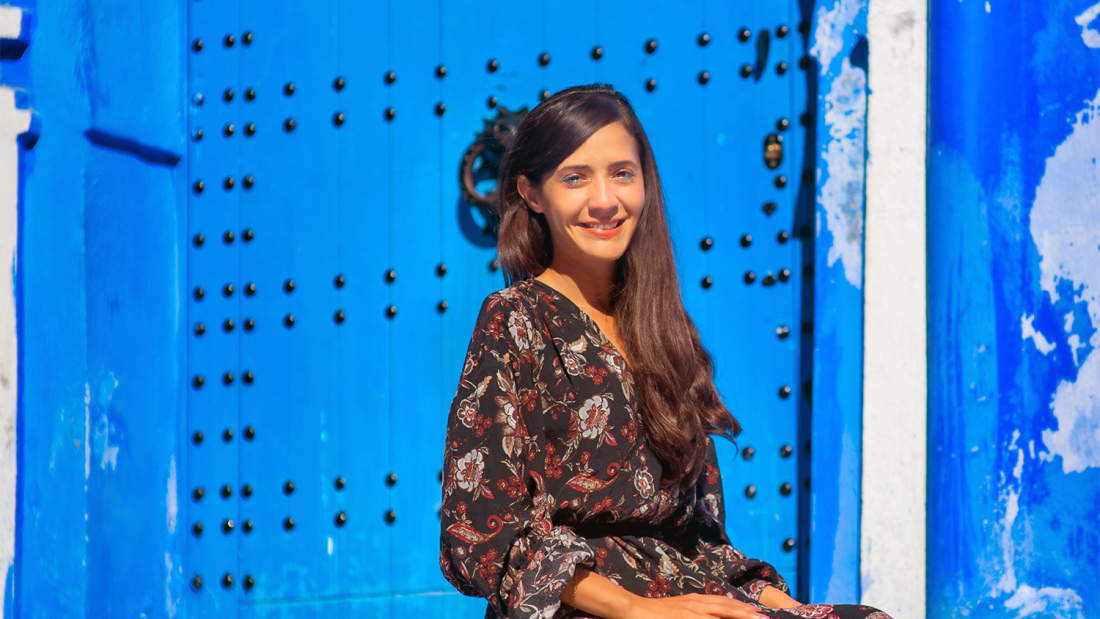
Master’s student Yasmine El Baggari has been to all 50 states. And she hasn’t just “been” to them in a casual, check-off-the-box way. She has been to them, for extended trips, staying in the homes of more than 250 families, riding countless Greyhound buses, and fostering thousands of genuine connections across cultures.
Originally from Morocco, El Baggari decided that she wanted to travel the United States by bus when she was 17, starting from Kansas where she was living while taking part in the Kennedy-Lugar Youth Exchange — a state-department exchange program that seeks to dismantle stereotypes about Morocco, Africa, and the Middle East in the United States. “I told myself, if I can break down stereotypes in Kansas, I can do it in all 50 states,’’ says El Baggari. She continued her travels across the U.S. through college and beyond, visiting her final state — Alaska — in 2019.
Her commitment to the interpersonal and cross-cultural benefits of travel only grew from there, with additional visits to 50 countries. Six years ago, El Baggari founded Voyaj , an international exchange company that seeks to break down cultural stereotypes and foster a sense of global interconnectedness through travel experiences. Voyaj connects people of all ages with others in their destination country who share their interests and values, “in order to have a deeper cultural experience through their lens,” El Baggari explains.
The program, currently being piloted with select communities, has facilitated journeys for its clients to more than 40 countries, including France, Morocco, and the United States. Hosts open their homes to travelers, who then open their hearts and minds to embrace new cultures. The Voyaj process is planned to work through the Voyaj website, where travelers will be able to sign-up, arrange homestays, and share stories about their journeys.
El Baggari’s work at Voyaj, which is currently a venture at the Harvard iLab , is grounded in the belief that when humans from different backgrounds form authentic connections, our increased global understanding can help lead to a more peaceful world. Learning more about how the human mind works while at the Ed School has given her insight into the factors at play when two strangers sit down and form a deep bond, despite their different social contexts — factors she learned anecdotally from her travel experiences. This developmental knowledge, El Baggari believes, will help her understand cross-cultural connections, even when stereotypes, walls, and borders stand in the way.
“It is so important to realize that we aren’t really that different, and that we can embrace any perceived or real differences and identify our commonalities,” she explains.
When COVID-19 restricted travel, Voyaj created remote opportunities for connection, facilitating online experiences for people around the globe. While these gatherings lack the allure of an international, in-person experience, they have addressed some of the social ills exacerbated by the pandemic like loneliness and isolation. “That’s one of the positive sides of COVID: More communities are looking to connect and to do so more deeply,” says El Baggari. “Because of the isolation, people are eager to meet. These virtual experiences have proven meaningful.”
El Baggari expects the evolution of Voyaj to continue — even as she concurrently focuses on her ultimate travel goal: becoming an astronaut through Space For Humanity’s sponsored citizen astronaut mission. With the support of her global team, she is running pilots for the upcoming Voyaj app, as well working to form partnerships with other exchange and travel organizations in the United States, New Zealand, Morocco, and elsewhere.
El Baggari believes that travel is about more than place. It is about people: the people you see, the people you meet, and the people who change you along the way. “I believe we have the opportunity to learn at every moment from every encounter,” says El Baggari. “We’re here, and alive! We’ve got to connect, to open and share our cultures, and realize who we truly are.”

The latest research, perspectives, and highlights from the Harvard Graduate School of Education
Related Articles
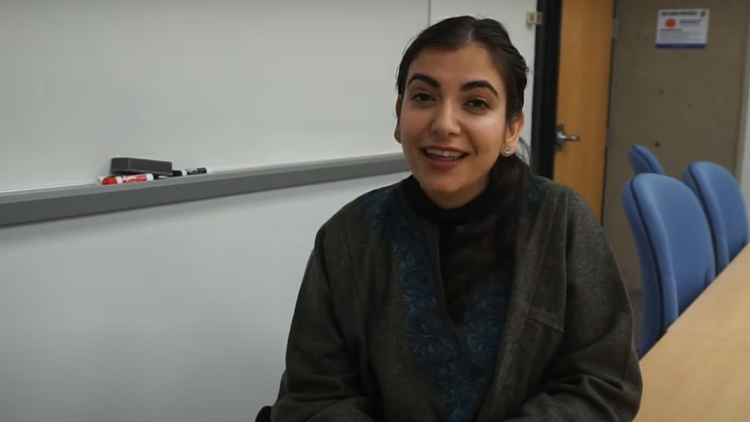
Every Child Has a Voice
Building social-emotional learning skills through the arts
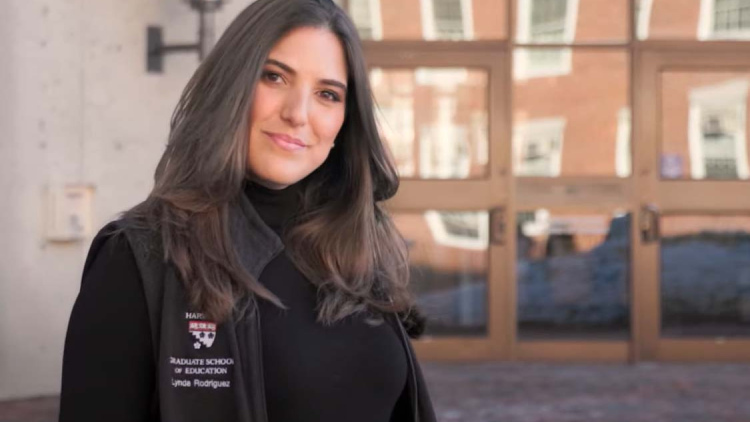
Beyond Table Manners
Lynda Rodríguez, Ed.M.'22, shares how etiquette can be a powerful learning tool
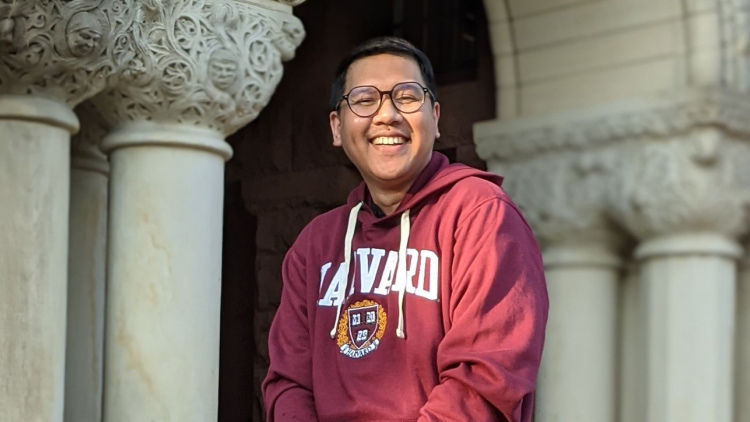
A Personalized Learning App Helps Close the Divide
- EN - English
- PT - Portuguese
- ES - Spanish
- How it works
- Become a Host
- Download the app
Top Destinations
- United States
- United Kingdom
What type of experience are you looking for?
- Non-Profit School
- Permaculture project
- Eco Village
- Holistic Center
- Guest House
- How Worldpackers works

Learn from the most experienced travelers of the community
Traveling with worldpackers, planning and budgeting for travel, make a living while traveling as a lifestyle, travel with worldpackers.
- Using Worldpackers
- Work exchange
- Social impact
Plan your trip
- Women traveling
- Budget travel
- Solo travel
- Language learning
- Travel tips
- Get inspired
- Digital nomads
- Travel jobs
- Personal development
- Responsible travel
- Connect with nature
Top destinations
- South America
- Central America
- North America
- More destinations
- WP Life WP Life
- Exclusive discounts Discounts
6 essential ways travel promotes learning and education
Is travel the purest form of education? A trip abroad expands your worldview, connects you to your global community, and empowers you to be your most authentic, forward-thinking self.
Nov 10, 2023
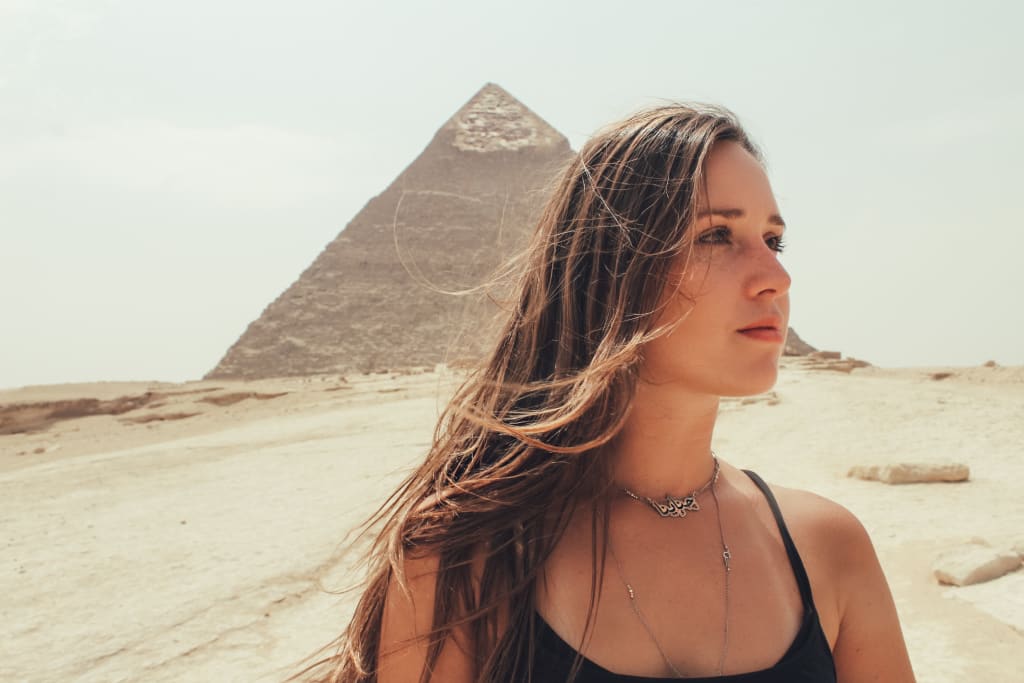
A few years back, I left my comfortable home and job in the United States for a year of international travel, country-hopping, and experiential learning.
I have always considered myself a lifetime student, and enjoy the experience of learning in a classroom and investing my time in school. Some of my greatest mentors have been school teachers and college professors, and many people from my formal student years have played major roles in shaping my character and supporting me on my path toward becoming my truest and most authentic self.
After many years of school and classroom-based learning in a top American college of education, I was surprised to discover the seemingly infinite ways that travel as a form of education is a game-changer . From volunteer projects in Central America and the Middle East to learning new languages by living in communities of native speakers, the educational impact of my experiences abroad has been unparalleled.
So much has happened since my initial take-off — now a few years back — and aside from the countless ideas, projects, ventures and experiences, I have truly learned to live and inhabit my senses in so many new and exciting ways. Life has never been better, or more interesting.
As someone who never thought of travel beyond vacations and short trips organized by travel agents to now living location-independent and making the world my classroom , this is why I believe in the power of travel; as education and opportunity, and a greater means to community and empowerment.
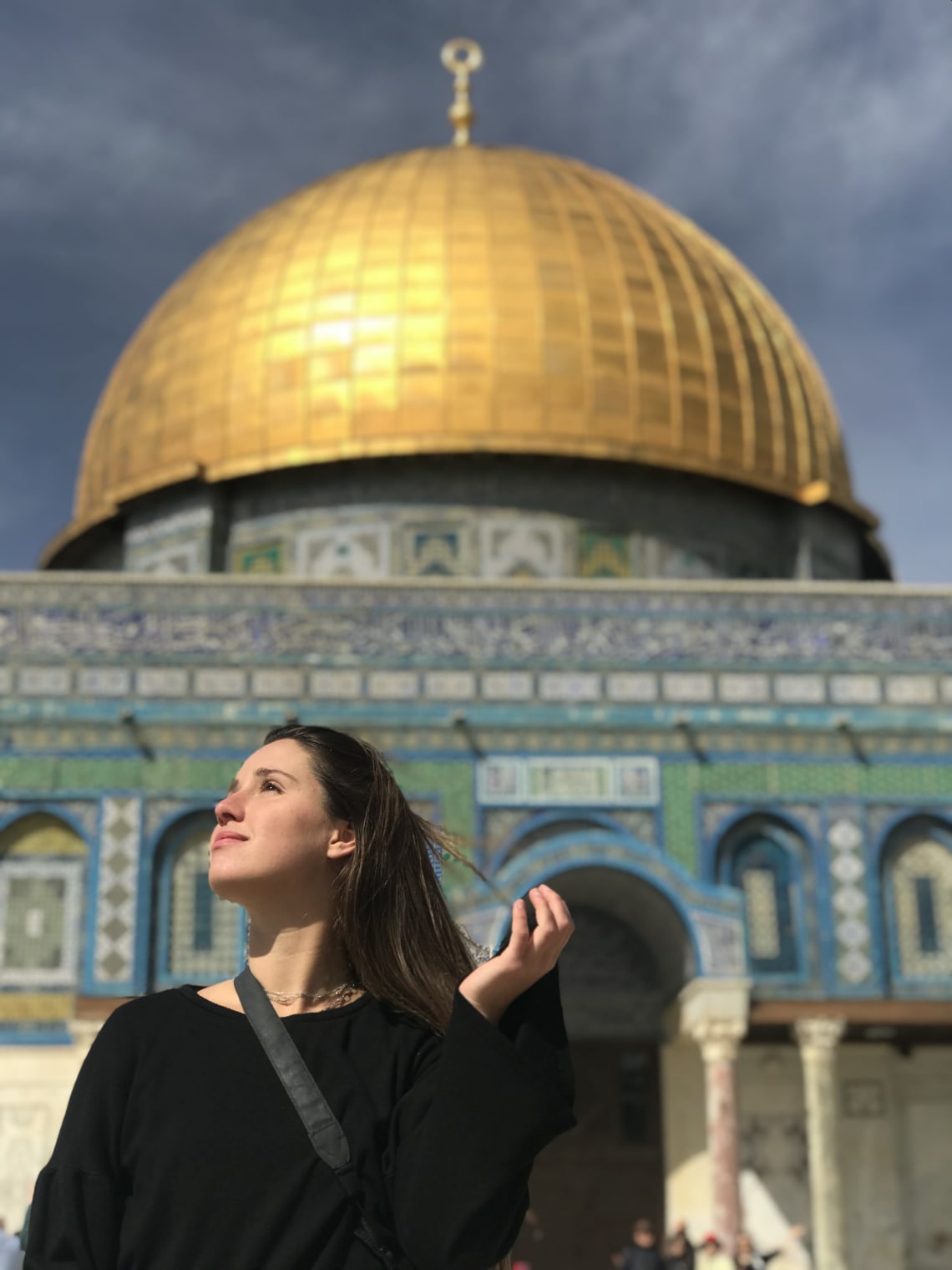
1. It broadens your horizons through cultural immersion
Nothing compares to the experience of being fully immersed in a country and its culture.
International travel should be about more than tourism and site-seeing. A trip abroad is an opportunity to witness and participate in life in another country; to connect with local people and learn about the ways in which they experience the world. Thus, when you travel, the world becomes about more than you or your country of origin.
When I travel to a new country or place, I like to give myself time to truly dive into the layers that constitute history, language, belief systems, and everyday life. There is much to be learned by venturing outside the classroom.
2. It motivates you to participate on a local level
Whether visiting the great pyramids and astounding temple complexes of Egypt, strolling the streets of Paris, or adventuring in the Brazilian Amazon, a trip abroad asks you to participate . When you experience distant people and cultures firsthand, you'll naturally feel more inclined to engage.
Whether it's by practicing the local language or simply observing your surroundings, travel leads to a more open and global-minded viewpoint where you understand how people and places are interconnected. Immersing yourself in different cultures will help you adopt a sense of empathy for others who live differently than you.
As you learn about other political, economic, and social structures, you'll become more motivated to participate on a local level. Opportunities for participation are boundless and range from volunteer efforts and work exchanges to language groups and eco programs and home-stays with host families. Participating in a country's daily rhythms is an educational experience rich in hands-on and active learning, and demands that you step out of your comfort zone and lead with curiosity and an open mind .
3. It challenges you to grow
Traveling will make you more adaptable. Leaving your comfort zone helps you become more independent, responsible and confident. You'll become better at thinking on your feet, and you'll be a better problem solver, planner, negotiator, and more. My time spent volunteering, working and living in other countries has allowed me to discover strengths, skills, and passions that otherwise may have remained hidden.
While traveling tends to be seen for its glamorous side, the reality is often far from. Life on the road has its own challenges and quickly breaks down the superfluous and extravagant to the essential — patience, an open mind, tolerance, resilience.
Beyond the discovery of new places and breathtaking sights and monuments is the discovery of self, of the layers and fabric you are made of, and what it means to be true to yourself and live well.
3. It helps you connect better with others
Regardless if you are in your own country or abroad, it's easy to connect when we focus on the things we share. Every country has something to offer and teach you.
One of my guiding intentions as an international full-time traveler is to give every country a chance. More often than not, this means being a witness to the positivity of misunderstood and negatively perceived places, and finding a way to learn and connect with people in spite of dissimilar beliefs or attitudes .
Differences exist in lifestyle and etiquettes across cultures, and part of the experience of traveling is finding the commonalities and being humble enough to acknowledge and appreciate the differences as much as the similarities.
Connecting with people in different places around the globe provides you with a whole new perspective and insight about a culture or way of life that previously may have seemed too foreign or alien to understand. It's humbling and eye-opening to see how others live.
Nothing beats the feeling of breaking a preconceived stereotype or seeing past the influence and bias of media and connecting with a country and its people in real time. When you travel abroad, you gain a better understanding of people and their actions. It is inspiring to listen to the stories of people around the world, and this human connection can help you become a more compassionate and empathetic person.
Over time, these cross-cultural experiences pull you out of your cultural bubble and help you empathize and connect with people from backgrounds different than your own.
4. It promotes a deeper sense of understanding
Travel not only teaches you about the world as it is today, but also about the history behind the current complexities of social, political, and economic structures.
Everyone studies history in school, but traveling brings history to life. In addition to seeing some of the world's greatest monuments and museums, you also feel the energy of the people and countries you visit.
What was once a standard school history lesson becomes an ongoing process of experiential learning ; you become absorbed by the play of life happening in front of and all around you, and begin to understand the underlying reasons and forces behind why societies and cultures are shaped in a particular way and differ from one another.
The more you travel and engage, your understanding of history grows, and your understanding of the world broadens . Ultimately, this understanding extends inward as well; you learn about yourself and your true potential and become better equipped to be proactive about your goals and dreams.
You feel that you belong to many places, and your sense of "home" expands.
5. It builds community
From cultural immersion to participation to discovery to connection to understanding, travel builds and strengthens community . Whether you go somewhere as part of a university exchange program via student travel or join a volunteer effort, whether you travel solo or go on a weekend trip and end up bonding with a local over shared cuisine or an activity, your idea of community grows.
I used to think of my community as exclusive to my home, or the place I physically inhabit, but my understanding has evolved to include my global community, the people and efforts that exist beyond my own borders. Community is greater than something physical, something tangible; it is created, sustained, and amplified by connection, participation, and understanding.
Traveling — if done with the right intention — can lead to a deeper understanding of global dynamics and power structures, and a heightened sense of responsibility to the greater community .
Seeing yourself as part of the global community is essential to remembering that we are all connected, we are all in so many ways more similar than we are different. The mark of a global citizen is acceptance, tolerance and appreciation, and above all, an awareness of the ways in which countries and people are interconnected and part of an emerging powerful and dynamic world community.
6. It leads to empowerment
The more you travel and expand your worldview, the more you are empowered to embody your authentic self and take action that supports sustainable global development and a collaborative world community .
You become more independent, and cultivate a propensity for self-study and self-improvement . The skills gained through travel experiences are more than worth the effort, and have an impact that reaches beyond life and community as you once knew it .
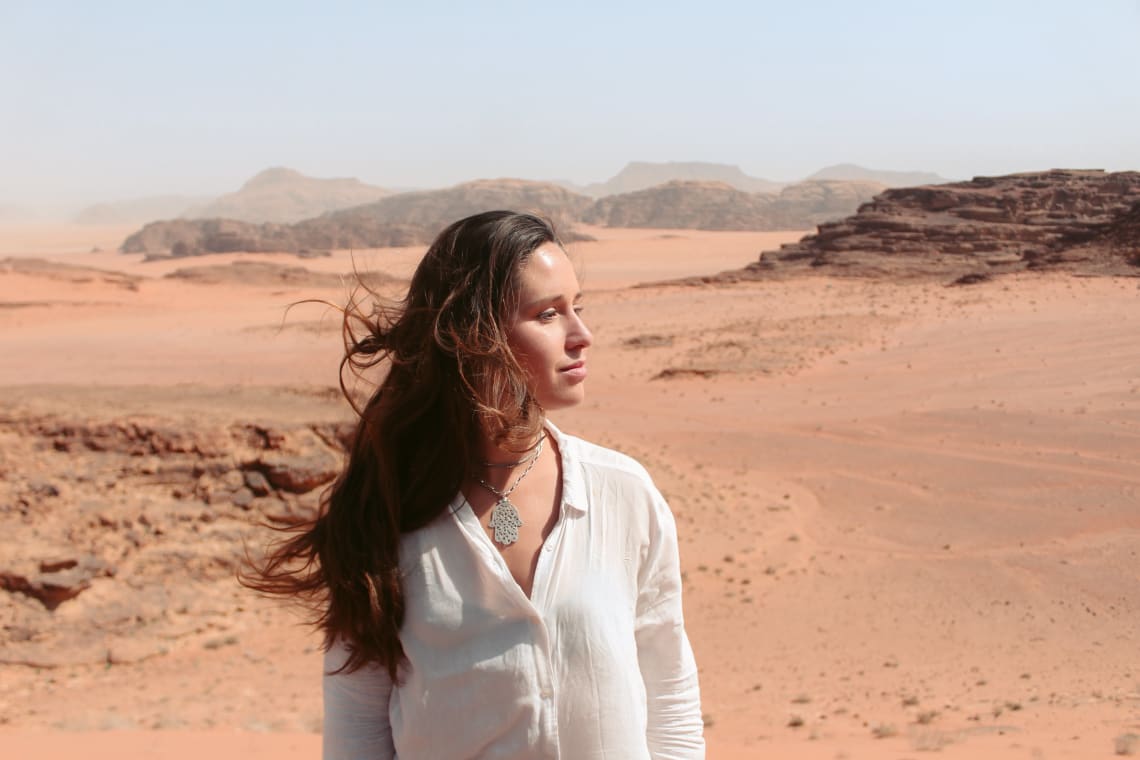
No matter how many years you study in formal school or your number of university degrees, travel has so much to offer you .
You gain a deeper and more nuanced understanding of history, and you rethink everything you once knew about how to study and understand the world today. By putting yourself in unfamiliar territory, you learn how to adapt to new environments, and in the process, discover more about yourself.
Travel has the capacity to change your life . My travel experiences have been integral in shaping who I am — a brave, forward-thinking world citizen. When I began my journey, leaving home for my first long trip meant letting go of everything I spent my entire life trying to gain. And while I closed the door on my perceived stability and comfort, I opened another to so many incredible opportunities, all of which would have been impossible to foresee.
The world seems fragile and scary during these complicated times of hatred, radicalization, and conflict. Nonetheless, there is so much to learn from adventuring beyond the familiar places where we feel safe and stable . Don't hesitate to let experience be your teacher.
So, to anyone who is dreaming of traveling, I dare you to go for it. It will never seem like the "right" time or the "right" amount of savings, it will never be simple, or easy.
But, if you are dreaming of taking that leap of faith, as terrifying as it may seem: take it. You won't regret it.
Join the community!
Create a free Worldpackers account to discover volunteer experiences perfect for you and get access to exclusive travel discounts!
Janaína Colomba
Janaina Colomba is a writer, traveler, and creative inspired by the beauty and wisdom of people and places. Her personal mission is to bridge cultural gaps and ignite community and understanding. Janaina is currently based in Cairo, Egypt and can be found on Instagram.
Be part of the Worldpackers Community
Already have an account, are you a host, leave your comment here.
Write here your questions and greetings to the author
Feb 23, 2019
Excellent and informative article.
Mar 13, 2019
Thank you so much, Imran!
U seem to be a frequent Traveller. I m a UN official posted in Congo. What about u?
Mar 16, 2019
Wow! I'm a writer based in Cairo at the moment.
May 23, 2023
I apologise, but, in my opinion, you are mistaken. Write to me in PM, we will discuss.
Jun 26, 2023
https://rent-a-car-alanya.com/es/
Howardboany
Oct 03, 2023
https://virtual-local-numbers.com/countries/7-canada.html
RaymondTheli
https://european-sailing.com/new-caledonia-yacht-charter
battery india
Oct 30, 2023
Between us speaking, you did not try to look in google.com?
Nov 09, 2023
https://www.sexualcase.com/
Waltergloli
https://www.doornight.com/
Shivraj Singh
Feb 15, 2020
Amazingly awesome article. It reflects perfectly crafted thoughts of a beautiful mind which is achieving enlightenment through travel.
Oct 01, 2020
Awesome experience Janaina!.. would love to know more about it
Apr 24, 2021
Hi, my name is Maryam from Egypt. I have 15 years. If I can travel to Italy and work with you, I would like to respond as soon as possible.
Dec 07, 2021
Yes we can arrange That 💪
Jan 04, 2023
Apr 26, 2023
Besides the agencies a number of independent Noida Escorts are available to spend unlimited romantic moments with you at an affordable package. https://www.sarakaur.com/noida/
May 17, 2023
You are doing amazing work! Keep it up
May 25, 2023
Informative blog https://marstyle.nl/
Sep 18, 2023
high profile call girls in Kolkata Visit Site: - https://tannusinghal.in
More about this topic

6 simple steps to make your next vacation transformational
Complete guide to slow travel: why and how to practice it
7 simple ways to become a mindful traveler
How do worldpackers trips work.
As a member, you can contact as many hosts and travel safely as many times as you want.
Choose your plan to travel with Worldpackers as many times as you like.
Complete your profile, watch the video lessons in the Academy, and earn certificates to stand out to hosts.
Apply to as many positions as you like, and get in contact with our verified hosts.
If a host thinks you’re a good fit for their position, they’ll pre-approve you.
Get your documents and tickets ready for your volunteer trip.
Confirm your trip to enjoy all of the safety of Worldpackers.
Have a transformative experience and make a positive impact on the world.
If anything doesn’t go as planned with a host, count on the WP Safeguard and our highly responsive support team!
After volunteering, you and your host exchange reviews.
With positive reviews, you’ll stand out to hosts and get even more benefits.
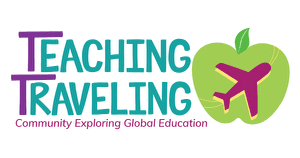
Welcome to Teaching Traveling!
Love learning about the world.
Teaching Traveling offers expert advice on global education curriculum , enriching trip ideas , and educator travel grants .
I’m Lillie Marshall , a public school teacher who started this site in 2010 . Teaching Traveling has had over 1.6 million pageviews since then, and I’m thrilled you’re here to explore the globe with us, too!

Travel Grants and Scholarships
See funded teacher travel opportunities.
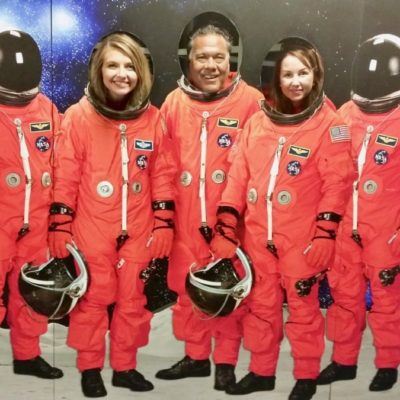
300 Teacher Travel Grants and Funding Opportunities for Educators!
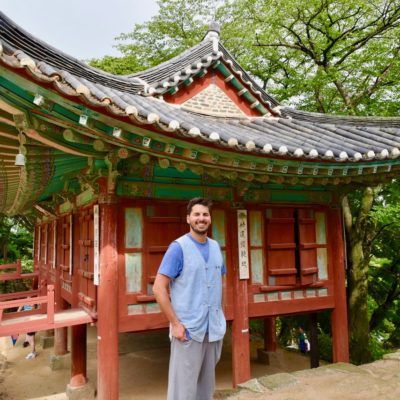
5 Programs for Free Teacher Travel

24 Teacher Travel Opportunities for Free or Super Cheap: A Great List!
Latest articles.
Browse the most recent posts on Teaching Traveling.

Gullah-Geechee PD in Georgia: Scholarships Available!
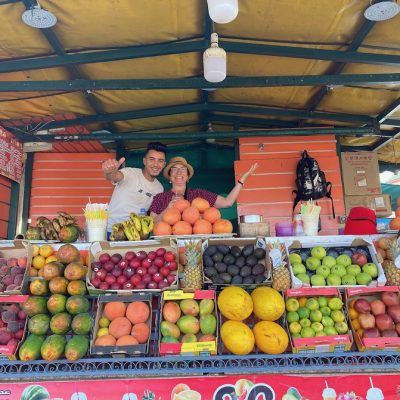
Morocco Teacher Travel Tour Fun, with Funding!

BOOMTOWN GIRL by Shubha Sunder: a Review
Curriculum resources.
Find new and useful ideas to bring into education today.

New Massage Therapist’s Guide: an Educational Book for All
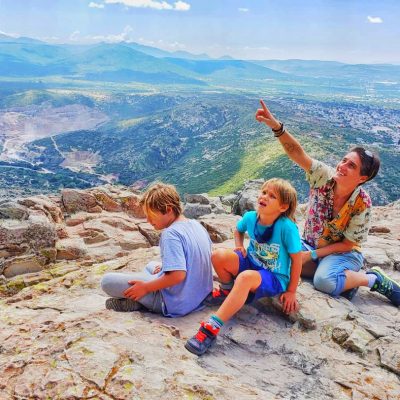
Travel or Living Abroad in Mexico with Kids: an Expert View
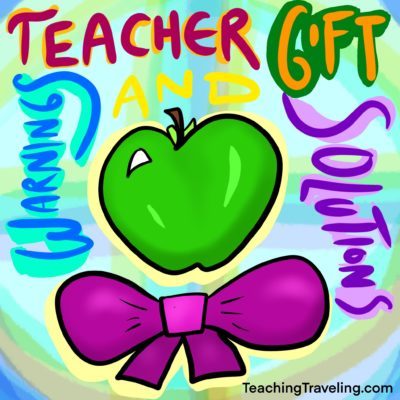
A Warning About Gifts for Teachers: READ THIS Before You Buy!


Middle East Travel Grants, and Writing Refugee Realities

Find a Therapist in MA: this Free Therapy Matcher is Amazing!

Classroom Posters Now Available, Hand-Designed by Lillie

Is Saying “Dark” to Mean “Bad” an Offensive, Racist Metaphor?

“Look Both Ways” by Jason Reynolds: Analysis by a Teacher
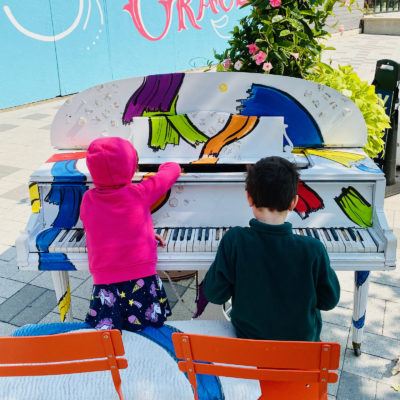
Why to STOP Saying “They Grow Up So Fast” About Kids

Get the Monthly Newsletter:
Get the teaching traveling newsletter.
Sign up for updates and grant info!
You have successfully joined our subscriber list.
This site uses Akismet to reduce spam. Learn how your comment data is processed .
Everyone, everywhere, deserves to get an education
Our focus is to educate teachers and students around the world. We do this by focusing on how to better educational systems around the world. The four branches of this organization include: (1) teachers teaching teachers around the world; (2) assisting students in gaining education remotely, no matter their location; (3) students gaining education through travel; and (4) humanitarian assistance for educational systems that need additional help.
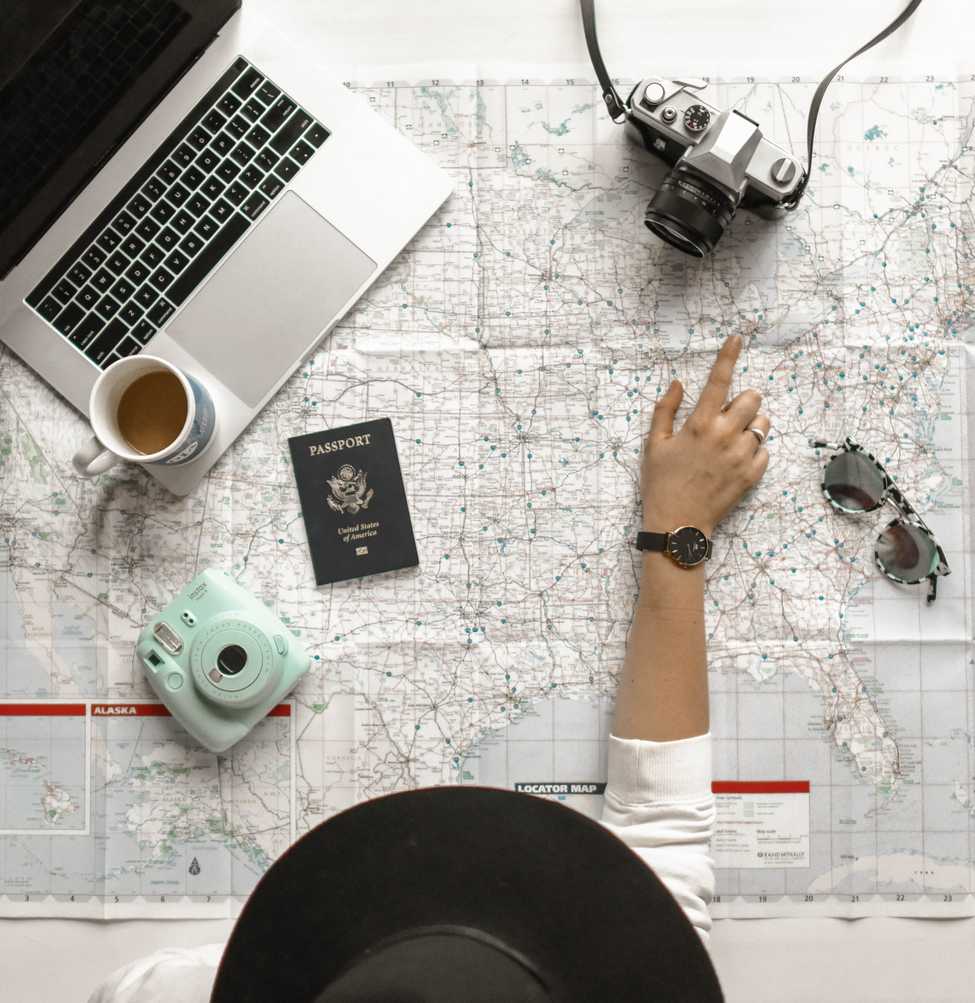
Why I Started Education Through Travel
Every person deserves to have their views of the world expanded to have greater understanding of the cultures and societies around them. This is, at its core, what Education Through Travel is striving to do. My whole life has been leading up to this and I am excited to see what can come from educating through travel.
Read More...
Our Mission
- Teachers teaching other teachers
- Students having access to education, no matter their location
- Students gaining education through travel
- Humanitarian assistance for educational systems that need additional help
Support Education Through Travel
Resources for teachers, resources for students, why education is important, why education is important generally.
Education matters. Learning is important for all people, whether they are 1 or 100. There are many around the world that do not have access to the education that is necessary to understand how governments, societies, economies, ecosystems, and relationships work across the world. This basic knowledge of these various systems is essential to contributing and thriving in the world today.
Educated people help lift the countries in which they live. According to one study “[e]ducation stimulates economic growth and improves people’s lives through many channels, namely: by increasing the efficiency of the labor force and thus increasing an individual’s earning potential, by fostering democracy and thus creating better conditions for good governance, by improving health and reducing fertility, by enhancing equality, and so on.” Education can positively influence individuals, but it can also positively influence communities, societies, and the world.
There is no denying that education is important generally, but there is also no denying that primary education, or elementary school education, is exceptionally important. Primary education has a higher rate of giving back to the country, especially in developing countries. One study found that “the rates of return to education are higher for primary education, than for further education, and that primary education contributes more to economic growth in less developed countries than in developed countries.”
Education, for children in particular, creates a ripple effect in communities. Education should be provided by teachers who care and who are educated to the level they are teaching at. Every person, regardless of race, gender, socioeconomic status, and the country they live in, is entitled to a robust education. Education matters.
Teachers Teaching Teachers
There are amazing teachers around the world, but there are some disparities depending on the country in which the teacher teaches. There are disparities around pay, levels of education, students in the classroom, amount of deference shown to the teacher, and the level of education/training a teacher has.
Pay of Teachers Around the World
Pay of teachers in the United States has been a topic of debate for decades. There are many that believe teachers should be paid more. Some countries around the world have stepped up to show how much teachers mean to the communities by paying them well. Teachers in countries such as Luxembourg, Switzerland, Korea, the Netherlands, Germany, and Austria are some of the highest paid in the world. It is not surprising that countries such as Germany, Switzerland, Korea, Luxembourg, and the Netherlands rank in the top countries based on education rankings .
Teachers are not all paid equally around the world. With regard to developed countries, the lowest paid teachers are in Slovak Republic, Czech Republic, Poland, and Hungary. Other countries that rank among the lowest paid teachers are Chile, Brazil, and Indonesia.
Teachers in developing countries are paid even less than teachers in developed countries comparatively but are paid well when compared to the gross domestic product (GDP) of the country in which they teach. The pay of the teacher also depends on if they work in the private or public sector.
Teachers may not have the incentive to put their heart, soul, and training into full practice if they are not compensated fully. An excellent teacher makes a difference in the lives of their students. The quality of a teacher can make or break the education of a classroom full of students and can have lasting effects on the community and world at large (as will be further discussed below).
Classroom Sizes
There is a great deal of debate as to whether the number of children in a classroom affects the student’s ability to learn. Malcolm Gladwell points out in his book David and Goliath that there have been studies that indicate that there is a “sweet spot” for the number of students in a classroom. Various developed countries have long held that smaller classroom sizes are best for the students because the teachers can give more individualized attention.
Whether a classroom size matters or not, developed countries that put high attention on education often have smaller classroom sizes, while countries that do not put as high a premium on education have larger classroom sizes . With regard to more developed countries Brazil and Chile are among the largest class sizes of thirty-two and twenty-seven, respectively. The lowest classroom sizes are in Norway and Portugal, nine and eight, respectively. In under-developed countries, such as Ethopia, have over sixty students per teacher. (teacher shortage) As will be discussed further below, with a less than 55% qualified teacher rate in Ethiopia, the number of students per qualified teacher in Ethiopia is over 120.
Deference Shown to Teachers
Teachers are not given the respect they deserve in many countries. As discussed, education can shape the lives of individuals and can color communities and countries in long-lasting ways. Proper education is extremely important, and teachers should be given the at least level of deference needed to help support proper education.
There are certain collectivist countries like China and Malaysia that usually show the greatest respect to their teachers. Israel and Brazil rank the lowest for respect towards teachers. Countries that tend to be more individualist, like the United States and United Kingdom, rank in the middle of developed countries for respect for teachers .
Teacher Absenteeism and Lack of Teacher Involvement
While, in America and most developed countries, it is almost inconceivable to think that teachers would just not show up for class absent an emergency, there is an issue in some countries of teachers being absent from the classroom, and even the school. Countries like Mozambique, Uganda, and Tanzania have a problem with teacher absenteeism. In 2017, a study showed that in Mozambique teachers were absent from the school 45% of the time and absent from the classroom 56% of the time and in Uganda teachers were absent from the school 28% of the time and from the classroom 57% of the time.
For these countries the same study showed a low percentage of time spent on teaching. This could be due to the fact that the teachers are often absent from the classrooms, but the percentages show a greater amount of time not spent teaching than the amount of days the teachers were absent from the classroom. For Mozambique the average percentage of time spent on teaching is 39.46%, for Uganda 42.03%, and for Tanzania 55.21%. These students are not gaining what they could from the teachers if the teachers were present and teaching.
This essentially means that students do not even have a teacher in the classroom over half of the time, and teachers are not teaching for a percentage of the time they are in the classroom. There is room to teach classroom techniques and other pedagogical techniques to these teachers so that students may receive the best education possible.
Where Do We Go from Here?
The differences between countries and their treatment, respect, and pay of teachers are apparent from the statistics above. This is the information that is needed to show the foundation and starting point of where the world sits with our educators. We can do better as a global society.
The world is deficient in the number of teachers necessary to teach the number of children around the world. According to one study , the world will need almost 69 million more teachers by 2030. Most countries will achieve the number of teachers they need, but there are many that will not. Countries such as African Republic, Mozambique, Uganda, Bangladesh, Indonesia, and Myanmar are not on track to have the number of teachers needed by 2030.
There is much work that needs to be done to educate the world properly. The benefits of a good teacher are immeasurable. Teachers that are properly trained, educated, and desire to teach can make monumental differences in students’ lives. This is something that seems intuitive, but the statistics back up this idea.
Research by Raj Chetty, John Friedman, and Jonah Rockoff supports the idea that teachers are incredibly important in how student perform. A high-quality teacher can improve the results of students and the presence of a low-quality teacher can negatively impact the results of students. This study concludes that it is apparent through the data that the dispersion in teacher effects is substantial. These results imply that higher-quality teachers can raise a student’s test score significantly.
The old adage that “children are our future” is absolutely true, but the teacher that teach those children are an important part of how the children are taught to become the future. A good teacher, that has the ability to give their attention to all of their students, is paid well enough to not have to worry about their ability to support themselves and their families, and is given the respect they deserve, will change the world. One student at a time.
Students Learning Through Travel
Travel can help individuals expand their world view, help individuals learn beyond their normal situations, and help individuals gain experiences over theories. When students, especially teenaged students, have the ability to go learn outside of their normal day-to-day lives, they can gain an appreciation for people, cultures, and situations other than their own. This leads to greater compassion and understanding.
Expanding World Views
Traveling is an excellent form of education. Traveling to a foreign country and to different parts of one’s own country helps individuals understand various cultures and the common ground that unites different types of people. When students who are kept in their own neighborhood or small town and do not have the opportunity to see any other types of cultures, people, or places will have a difficult time understanding others.
Looking to the cultural ideologies and art of various countries and sub-cultures there may be differences, but there are similarities as well. The love of nature, art, and ancestral respect are all similarities between many cultures.
By seeing the differences and similarities in and understanding various cultures, people can start to understand how they can best contribute to the world. This is especially true for teenagers because they are able to start young and help their worldview form around that knowledge. When people can contribute to the world based on a variety of experiences it makes the world a better place for all.
Learning Beyond Normal Day-To-Day Situations
When an individual is able to get out of their routine and discover something outside of themselves, there is an enormous space created to learn. The individual can learn compassion for the lives of others, learn about themselves, and gain transformative learning experiences to become a better world citizen.
When it is discovered that people are just people, no matter where they live or what they look like, prejudice will subside. Knowing how people interact will help the global community become closer and greater understanding between peoples.
In a study in 1938, one of the pioneers of the idea of learning through experience, “proposed that knowledge and skills that a person learns in one situation can help them to understand and react to subsequent experiences.” Experiential learning has been defined as “meaningful discovery” by Boydell in 1976. Experiential learning is “when learners uncover knowledge on their own, through perceptual experiences and insights, usually as the result of a personal experience.”
Travel can be used as a catalyst to experiential learning, or meaningful discovery, for everyone. These experiences can be combined with “ perception, cognition, and behavior to create learning .” A person can change for the better when these ingredients come together. People could even transform with these experiences. One study found that “the changing viewpoints in the traveling student to be akin to transformative learning.” When there is the ability for true, deep, and lasting change and learning a person can become a better version of themselves and change the world.
Experiences Over Theory
Students can learn about history, culture, and art from a textbook, but there is more that can be learned through experience. When a person is able to travel to the historic landmarks, explore the city’s cultures, and see the artistic marks on a city or country there is greater learning that happens beyond reading. Museums, buildings, and other sites can lead to deeper understanding of what happened in a city, how it happened, and how the society has been shaped by those events.
It has been suggested that what one learns about history through textbooks is deviated from reality. When able to talk with locals and walk through the streets of a city one can understand history in a greater and more accurate way. Having these experiences can help individuals, especially students, gain a different perspective.
Humanitarian Trips to Bolster Education
Humanitarian trips can be used to better the world and allow those who go on the trip to gain further knowledge about cultures. Humanitarian trips can also be considered a failure because there are no systems that are set up to make sure that the “help” that is given continues. When an organization plans a humanitarian trip there has to be more than a quick “band-aid.” There must be a way to instill long term change that will truly help the community and the culture where an organization chooses to go.
There are also certain standards an individual should look for when deciding to volunteer. Individuals should volunteer and help the global community in whatever way they feel passionate about but traveling can also help that person grow and gain something for themselves. As mentioned above, traveling can help a person to learn and immerse in culture, but there are greater benefits when that person can go and serve as well.
How an Organization Can Truly Help
A story is related by Miriam Adeney in “When the Elephant Dances, the Mouse May Die” that was told to her by an African friend:
“Elephant and Mouse were best friends. One day Elephant said, ‘Mouse, let’s have a party!’ Animals gathered from far and near. They ate. They drank. They sang. And they danced. And nobody celebrated more and danced harder than Elephant. After the party was over, Elephant exclaimed, ‘Mouse, did you ever go to a better party? What a blast!’ But Mouse did not answer. ‘Mouse, where are you?’ Elephant called. He looked around for his friend, and then shrank back in horror. There at Elephant’s feet lay Mouse. His little body was ground into the dirt. He had been smashed by the big feet of his exuberant friend, Elephant. ‘Sometimes, that is what it is like to do mission with you Americans,’ the African storyteller commented. ‘It is like dancing with an Elephant.’”
In the book When Helping Hurts: How to Alleviate Poverty without Hurting the Poor... and Yourself by Steve Corbett and Brian Fikkert reference this story. The authors point out people who go on humanitarian trips need to integrate into the cultures and systems of the communities they are helping. If volunteers come in as an independent organization or as an outsider, the work that is done will not be incorporated into the communities.
Humanitarian trips can be exceptionally helpful when there is true development with the community, rather than rehabilitation to “fix” something that appears wrong to an outsider’s perspective. These types of trips are typically one to two weeks in length. This amount of time will not do the work that needs to be done. These short-term trips must be part of a long-term development approach that is supported by local organizations that will help move the cause along, even when there is no one there volunteering from an organized nonprofit.
The authors of When Helping Hurts also point out that an organization will do the best on a humanitarian trip, especially over the long term, when the community has asked for help. Once the community has asked for help or reached out, then the people from the community should also determine what the volunteers on the trip will do. There should be a plan to not simply go into a community, “help” that community, and then leave. With resources and assistances from people in that community there will be longer lasting change and greater outcomes.
How Humanitarian Trips Benefit Volunteers
Those who volunteer can benefit from humanitarian trips as well. Before an individual volunteers they should ask questions and get information about the trip. One should research the organization thoroughly before deciding to go on a trip with that organization. A person should understand both their own motivation and the objective of the organization where they are looking to volunteer.
An individual should look for organization where the program promotes local self-sufficiency. If an organization is well-connected with the local organizations in the country or area they are supporting that is a good sign. Local presence of people who are willing to help the organization after the volunteers are gone will help to better ensure the success and value of the work. Local presence can also help a person with their experience because the help will be received well and will continue on.
One of the best things a person can do is to look for an organization that can use their expertise and experiences to better their organization and cause. If a person takes their experience and knowledge to help a cause, it can help communities, countries, and the world. Giving and gaining perspective is one of the purposes to these types of humanitarian trips.
Volunteer opportunities also give a person the opportunity to see the world and gain a view of something outside of their normal life. This is similar to how students can learn through travel. This is true of humanitarian volunteers as well. If a volunteer is able to provide service in a community the volunteer can also explore, gain experiences, and see the community or country through the eyes of a local. This is when a volunteer can become a traveler, not just a tourist.
Gaining a new perspective is one of the greatest positive impacts a humanitarian trip can have on an individual. There are so many things that people can get caught up in when they are busy in their own lives. Volunteering in another country can be life changing. There are people who have their vision of the world broadened and have a better understanding and appreciation for different cultures, peoples, and situations.
There are many other positive benefits from giving back and focusing on others. A person can reduce their stress level and can contribute to your overall sense of satisfaction with your life. Volunteering can help you gain an additional sense of purpose, keep you active, connect with people, and according to some studies can even help you live longer.
Education Through Travel is working to help people over all these areas. Our mission is to help people gain the education necessary to become better world citizens. This can apply to those who are teachers, being taught, students, volunteers, or those who are asking for assistance. Helping teachers teach teachers, students learn through travel and experience, and to build up communities through humanitarian trips are the three main initiatives of Education Through Travel. It is our greatest desire to move these causes forward in the correct way to help the most people.
Winter is here! Check out the winter wonderlands at these 5 amazing winter destinations in Montana
- Travel Tips
How To Teach Travel And Tourism
Published: December 13, 2023
Modified: December 28, 2023
by Basia Gladden
- Plan Your Trip
- Travel Guide
Introduction
Welcome to the exciting world of travel and tourism education! Teaching travel and tourism is not only a rewarding career choice, but it also plays a vital role in shaping the future of the industry. Travel and tourism education equips students with the knowledge and skills needed to navigate this dynamic and multi-faceted field.
As the travel industry continues to grow and evolve, the demand for well-trained professionals is on the rise. This is where travel and tourism education comes in. Whether it’s guiding students in understanding the cultural, social, and economic impact of tourism, or teaching practical skills such as travel planning and hospitality management, educators play a crucial role in preparing the next generation of travel professionals.
In addition to preparing students for a future career in the industry, teaching travel and tourism also helps foster a sense of global citizenship and cultural awareness. Through interactive and engaging learning experiences, students gain a deeper understanding of the world, its diverse cultures, and the importance of sustainable travel practices.
Throughout this article, I will explore key concepts in travel and tourism education, effective teaching strategies, available learning resources, assessment methods, as well as the challenges and solutions in teaching travel and tourism.
So whether you’re an experienced travel and tourism educator looking for new ideas to enhance your teaching or someone considering a career in this field, this article will provide you with valuable insights and practical tips to make your travel and tourism education journey a successful one.
Importance of Teaching Travel and Tourism
Teaching travel and tourism is not just about imparting knowledge and skills; it is about shaping future industry professionals and creating a positive impact on the global economy and society as a whole. Here are some reasons highlighting the importance of teaching travel and tourism:
- Economic Impact: The travel and tourism industry is a significant driver of economic growth in many countries. By teaching students about the industry’s economic impact, including job creation, revenue generation, and foreign exchange earnings, educators contribute to building a strong workforce and promoting economic prosperity.
- Cultural Understanding: Travel and tourism education fosters cultural appreciation and understanding. Through learning about different destinations, customs, traditions, and languages, students develop a deeper appreciation for global diversity. This leads to a more interconnected and tolerant society.
- Sustainable Practices: In an era of increasing concern for the environment, teaching sustainable travel and tourism practices is crucial. By emphasizing the importance of responsible tourism, such as reducing carbon footprint, preserving natural resources, and respecting local communities, educators help shape environmentally conscious individuals who can contribute to a more sustainable future.
- Professional Development: The travel and tourism industry offers a wide range of career opportunities. By teaching students about different job roles, industry trends, and necessary skills, educators prepare them for successful careers in travel, hospitality, event management, tourism marketing, and more. This empowers students to pursue their passion and contribute to the growth of the industry.
- Global Citizenship: Teaching travel and tourism cultivates global citizenship by encouraging students to explore different cultures and engage with diverse communities. This not only broadens their perspective but also develops empathy, cultural sensitivity, and respect for others. It helps students become responsible global citizens who are aware of their impact on the world.
By recognizing and embracing the importance of teaching travel and tourism, educators can empower students to become future industry leaders, promote sustainable practices, and contribute to the growth and development of the sector. Through comprehensive education, students acquire the knowledge and skills necessary to succeed in a fast-paced and ever-evolving industry while making a positive impact on the world around them.
Key Concepts in Travel and Tourism Education
When teaching travel and tourism, there are several key concepts that form the foundation of a well-rounded education. These concepts help students develop a comprehensive understanding of the industry, its impact, and its various components. Here are some essential key concepts in travel and tourism education:
- Tourism Management: This concept focuses on understanding the principles and practices of managing tourism destinations, attractions, and businesses. Students learn about destination marketing, hospitality management, event planning, tour operations, and sustainable tourism practices.
- Cultural and Heritage Tourism: Cultural and heritage tourism emphasizes the exploration and preservation of unique cultural traditions, historical sites, and tangible and intangible heritage. Students delve into the significance of cultural tourism in promoting understanding and appreciation of diverse cultures.
- Travel and Tourism Marketing: Marketing plays a critical role in the travel and tourism industry. Students learn about marketing strategies, consumer behavior, digital marketing techniques, and destination branding. They explore how marketing can effectively promote destinations and attract tourists.
- Tourism Policy and Planning: This concept involves understanding the policies, regulations, and planning processes that govern the tourism industry. Students explore the role of governments, organizations, and stakeholders in shaping tourism development and ensuring its sustainability.
- Sustainable Tourism: Sustainable tourism emphasizes the importance of minimizing negative impacts on the environment, culture, and local communities while maximizing positive socio-economic benefits. Students learn about sustainable practices, responsible tourism, and the role of eco-tourism in preserving natural resources.
- Customer Service and Experience: The travel and tourism industry heavily relies on delivering exceptional customer service and creating memorable experiences for travelers. Students learn about customer service techniques, hospitality skills, and the importance of personalized experiences to enhance customer satisfaction.
These key concepts provide a comprehensive foundation for students in travel and tourism education. By understanding these essential concepts, students gain a holistic view of the industry, its challenges, and its potential. This knowledge equips them with the necessary skills and insights to excel in various roles within the travel and tourism sector.
Teaching Strategies for Travel and Tourism
Teaching travel and tourism requires a dynamic and engaging approach to ensure students grasp the concepts effectively. Here are some effective teaching strategies to enhance the learning experience:
- Real-World Case Studies: Use real-world case studies to provide practical examples that connect theory to the industry. This helps students understand how concepts apply in real-life scenarios and encourages critical thinking.
- Field Trips: Organize field trips to tourism destinations, hotels, or travel agencies to give students firsthand experience of the industry. This not only brings the learning to life but also exposes students to different job roles and operational processes.
- Guest Speakers: Invite guest speakers from the travel and tourism industry to share their experiences and insights with the students. This offers a valuable opportunity for students to learn directly from professionals and gain insights into industry trends and best practices.
- Group Projects: Assign group projects that require collaboration and problem-solving. This helps students develop teamwork skills and encourages them to apply their knowledge to real-world scenarios.
- Technology Integration: Utilize technology tools and resources to enhance learning. This can include virtual field trips, online simulations, interactive quizzes, and multimedia presentations. Incorporating technology keeps students engaged and allows for a more immersive learning experience.
- Role-Playing: Encourage role-playing activities where students take on different roles within the tourism industry. This helps develop their communication skills, problem-solving abilities, and decision-making capabilities.
- Industry Internships: Facilitate internships or work placements in tourism-related organizations to provide students with real-life work experience and develop industry-specific skills. This practical exposure contributes to a well-rounded education and enhances employability.
By employing these teaching strategies, educators can create a dynamic and interactive learning environment that fosters active participation and knowledge retention. It is important to remember that teaching travel and tourism should be a balance between theoretical knowledge and practical application to prepare students for the industry’s demands.
Learning Resources for Travel and Tourism Teaching
When it comes to teaching travel and tourism, utilizing a variety of learning resources can enrich the educational experience and cater to diverse learning styles. Here are some valuable learning resources for travel and tourism teaching:
- Textbooks and Reference Materials: Utilize textbooks and reference materials specifically designed for travel and tourism education. These resources provide a comprehensive overview of the industry, including concepts, theories, case studies, and best practices.
- Online Learning Platforms: Explore online platforms that offer specialized travel and tourism courses and learning modules. These platforms often include interactive lessons, quizzes, and discussion forums to facilitate engagement and knowledge retention.
- Professional Associations and Industry Websites: Many professional associations and industry websites provide access to a wealth of resources such as research papers, industry reports, statistical data, and industry-specific news. These resources can be used to enhance learning and provide the latest industry insights.
- Industry Events and Conferences: Encourage students to attend travel and tourism industry events, conferences, and trade shows. These events provide opportunities for networking, learning about industry trends, and gaining a deeper understanding of the industry’s current practices and challenges.
- Documentaries and Videos: Incorporate documentaries and videos related to travel and tourism into your teaching material. These visual resources can bring destinations, cultures, and tourism concepts to life, making the learning experience more engaging and memorable.
- Online Travel Platforms and Booking Websites: Introduce students to online travel platforms and booking websites such as Expedia or Airbnb. This allows them to explore travel itineraries, compare prices, and understand the role of technology in the travel and tourism industry.
- Industry Case Studies: Utilize industry case studies to demonstrate real-life examples and challenges within the travel and tourism sector. Analyzing these case studies helps students apply theoretical concepts to practical scenarios and develop problem-solving skills.
- Social Media and Blogs: Engage with travel and tourism-related social media accounts and blogs. These platforms provide up-to-date information, travel experiences, destination guides, and insights into the latest travel trends. Encouraging students to follow reputable sources helps them stay connected to the industry’s dynamic nature.
By utilizing a diverse range of learning resources, educators can cater to different learning preferences and create a well-rounded learning experience. It is essential to stay updated with the latest industry resources and encourage students to explore the vast array of available materials to foster a deeper understanding of the travel and tourism industry.
Assessment Methods in Travel and Tourism Education
Assessing student learning is a critical component of travel and tourism education. It allows educators to evaluate students’ understanding of key concepts, their ability to apply knowledge to practical scenarios, and their overall proficiency in the field. Here are some common assessment methods used in travel and tourism education:
- Examinations and Quizzes: Traditional examinations and quizzes are effective in assessing students’ understanding of foundational knowledge and their ability to recall information. These assessments can cover topics such as destination knowledge, industry terminology, tourism management principles, and marketing strategies.
- Case Studies and Written Assignments: Assigning case studies and written assignments allows students to apply their knowledge to real-world scenarios. These assessments can involve analyzing tourism development plans, developing marketing strategies for a destination, or evaluating the socio-cultural impacts of tourism.
- Group Projects and Presentations: Group projects and presentations encourage teamwork, critical thinking, and communication skills. Students can be tasked with designing a sustainable travel itinerary, creating a tourism marketing campaign, or presenting a research study on emerging trends in the industry.
- Practical Assessments and Simulations: Practical assessments involve hands-on activities that demonstrate students’ ability to perform specific tasks related to travel and tourism. This can include role-playing customer service scenarios, managing a simulated travel agency, or creating sample tour packages.
- Industry Internships and Work Placements: Assessing students during their industry internships or work placements provides an opportunity to evaluate their practical skills and professional conduct in a real-world setting. This can involve supervisor evaluations, reflective journals, and performance assessments.
- Online Assessments: Online assessments, such as quizzes and interactive modules, can be used to gauge students’ understanding of specific topics or concepts. These assessments can be self-paced and provide immediate feedback, promoting independent learning and knowledge retention.
- Peer Reviews and Feedback: Incorporating peer reviews and feedback allows students to evaluate each other’s work and provide constructive criticism. This promotes self-reflection, collaboration, and the development of analytical skills.
When selecting assessment methods, it is important to align them with the learning outcomes and objectives of the course. A combination of different assessment methods ensures that students are evaluated on various skills and competencies, including knowledge recall, critical thinking, problem-solving, teamwork, and industry-specific skills.
Furthermore, providing timely and constructive feedback to students is crucial. Feedback aids in their learning and growth, allowing them to identify areas for improvement and build upon their strengths. It also helps to encourage engagement and motivate students throughout their travel and tourism education journey.
Challenges and Solutions in Teaching Travel and Tourism
Teaching travel and tourism comes with its own set of challenges, but with the right strategies and solutions, these challenges can be overcome to create an effective learning experience. Here are some common challenges faced in teaching travel and tourism, along with potential solutions:
- Keeping Pace with Industry Changes: The travel and tourism industry is constantly evolving, with new trends, technologies, and practices emerging. To address this challenge, educators can stay updated with industry news, attend professional development programs, and collaborate with industry experts. This allows them to incorporate relevant and up-to-date information into their teaching methods.
- Engaging Diverse Learners: Tourism students come from diverse backgrounds and have different learning preferences. To engage these learners, educators can incorporate a variety of teaching strategies, such as case studies, group projects, role-playing activities, and technology-based learning. This ensures that different learning styles and preferences are accommodated, creating a more inclusive and engaging learning environment.
- Promoting Practical Skills: The travel and tourism industry relies heavily on practical skills. However, teaching these skills can be challenging in a classroom setting. To address this, educators can incorporate hands-on activities, simulations, industry internships, and guest speakers. These practical experiences provide students with opportunities to apply their knowledge and develop essential skills that are directly transferable to the industry.
- Fostering Cultural Sensitivity: As travel and tourism involve encounters with diverse cultures, it is important to foster cultural sensitivity among students. Educators can facilitate this by incorporating cultural experiences, promoting respectful interactions, and encouraging open dialogue. Guest speakers from different cultural backgrounds can also provide first-hand insights and help students develop a global perspective.
- Promoting Sustainable Tourism Education: Sustainable practices in travel and tourism are crucial for the industry’s future. Educators can address this challenge by integrating sustainability into the curriculum through case studies, discussions, and projects. Students can be encouraged to explore sustainable tourism practices and strategies, promoting the importance of responsible tourism and its impact on the environment and communities.
- Access to Industry Resources: Access to industry-specific resources and networks can be limited in an academic setting. To overcome this challenge, educators can forge partnerships with local tourism organizations, invite industry professionals as guest speakers, and utilize online resources, such as industry blogs, webinars, and research papers. This provides students with exposure to current industry practices and trends.
By recognizing and addressing these challenges, educators can create a more relevant and impactful learning experience for travel and tourism students. Through continuous professional development, engagement with industry partners, and an inclusive teaching approach, educators can equip students with the knowledge, skills, and cultural sensitivity required for successful careers in the dynamic travel and tourism industry.
Teaching travel and tourism is a fulfilling and important endeavor that prepares students for a dynamic and ever-expanding industry. By imparting knowledge, fostering skills, and promoting cultural understanding, educators play a crucial role in shaping future travel professionals and global citizens.
We have explored the importance of teaching travel and tourism, highlighting its economic impact, cultural significance, and role in promoting sustainability and global citizenship. We have also discussed key concepts in travel and tourism education, including tourism management, cultural and heritage tourism, and sustainable practices.
To enhance the learning experience, we have examined effective teaching strategies such as real-world case studies, field trips, and guest speakers. We have also discussed the importance of utilizing diverse learning resources, including textbooks, online platforms, and industry events, to provide a well-rounded education.
Assessing student learning in travel and tourism education is crucial, and we have explored various assessment methods such as examinations, group projects, and practical assessments. These methods enable educators to evaluate students’ understanding and proficiency in the field.
While challenges exist in teaching travel and tourism, we have provided solutions to overcome them. From staying updated with industry changes to fostering cultural sensitivity and promoting sustainable practices, educators can address these challenges through professional development, engaging teaching strategies, and industry partnerships.
In conclusion, teaching travel and tourism is an exciting opportunity to shape the future of the industry and inspire students to become well-rounded professionals. By embracing innovative teaching strategies, collaborating with industry partners, and nurturing a passion for travel and cultural understanding, educators can create a transformative learning experience that prepares students for success in the dynamic world of travel and tourism.

- Privacy Overview
- Strictly Necessary Cookies
This website uses cookies so that we can provide you with the best user experience possible. Cookie information is stored in your browser and performs functions such as recognising you when you return to our website and helping our team to understand which sections of the website you find most interesting and useful.
Strictly Necessary Cookie should be enabled at all times so that we can save your preferences for cookie settings.
If you disable this cookie, we will not be able to save your preferences. This means that every time you visit this website you will need to enable or disable cookies again.
I'm a high school senior who commutes an hour by train to school every day. It's helped prepare me for the real world.
- Four years ago, I started commuting to my high school — which is an hour away — by train.
- Sometimes the commute got difficult, especially when trains were delayed or canceled.
- But I learned how to be independent; I'm taking this real-life experience with me to college.

I hadn't thought about how cushy life was in grade school when my father drove me 10 minutes to school every morning.
But that ended when I started high school at The Hudson School, which is 25 miles away from my home in Madison, New Jersey.
Unlike the schools around me, The Hudson School offers an urban campus and an extremely small class size — only 26 people in my grade. When I learned it also offers courses not found in a traditional high school curriculum, such as Ancient Greek and military history, I knew it was right for me.
But with it being so far from my home, I have to travel every day to and from school via New Jersey Transit . It takes me a little under an hour to get to school and up to 75 minutes to get home.
Now that I'm a high school senior , I look back fondly on my four-year commute. I learned a lot on those trains — but not all of it was great.
When I first started commuting to school, it was nerve-racking
I thought I knew what I was getting myself into on that first day of freshman year — but after waking up at 6 a.m. and planning to make a 6:45 train, I realized that I would have to make some changes. I started to adjust my routine: I packed my backpack the night before so it was ready to go in the morning, and I ate my breakfast on the train.
Right off the bat, my parents were concerned about me getting on and getting off the train in the dark — not to mention the discomfort of being surrounded by strangers every time I rode the train because this was the fall of 2020, and COVID was still very much a concern.
Related stories
Meanwhile, I realized I was on my own for the first time. I had to make sure to have my tickets ready and deal with difficult conductors. In the beginning, I was nervous.
But I quickly got into the swing of things that first year and learned to enjoy my commute . Four years later, those commute jitters are long gone.
I learned real-life experiences from a young age
It didn't take long before I developed a routine and became familiar with the ins and outs of navigating trains , and I found that I could even sit with some friends from school who also commuted.
At first, I felt I was wasting valuable time just sitting on the train, so I soon started using my time productively by completing my homework . Because of this, I have learned to work in almost any environment.
I also learned a whole new set of skills. I have to ensure I have my tickets ready every morning and that I am on the right track for my train — little things that I hadn't really had to worry about before.
Additionally, I had to think on my feet and learned how to handle the unexpected. I know which stations offer transfers, so if I missed my connection, I knew where I can catch a different train. I also have learned to read a timetable, which came in handy when I was in Europe last summer .
But commuting every day isn't always easy
Commuting did take a toll on my social life . Some of my classmates didn't live so far from the school, so they didn't have to worry about a long commute. They were able to stay in Hoboken and hang out. Whenever I joined them, I had to keep the train schedules in my mind. The longer I hung out, the later I would get home, cutting into my homework and study time.
Commuting by train also means inherent mechanical issues. There have been days when it has taken me hours to get to school. It can get exhausting and draining; there are some days when I wish I could just get home as quickly as my peers who live in Hoboken and not have to deal with mass transit .
Plus, there have been times when I needed to get to school on time — for a big project or test — and then my train would suddenly get canceled or experience a delay. On those days, I struggled the most and had to get creative. Sometimes, I had to rent a bike to finish the commute. Other times, I had to get to another station to catch a faster train.
I imagined how much easier it would be if I were a regular high school student who took the bus to school.
Still, I'm glad I got to commute 25 miles every day before heading off to college
Looking back at the past four years, I realize commuting has helped prepare me for the real world — outside high school.
Now that I am about to head off to college, I feel that these experiences have helped me learn lessons about time management and problem-solving that I might otherwise not have learned.
It may have been a struggle at times, but I know that it was all worth it for the education I got in the end.
Watch: The true cost of turning America's school buses electric
- Main content
Sergei Korolev: Architect of Soviet Space Program

Sergei Korolev is credited as being the founder of the Soviet Union's space program. During his tenure, the Soviet Union saw many space firsts. This included the first satellite, Sputnik (1957); the first human in space, Yuri Gagarin (1961); and Luna 9, the first spacecraft to achieve a soft landing on the moon (1966).
While his name is well-known today, during his lifetime Korolev's identity was kept a secret (as were many activities of the Soviet space program.) This was in contrast to NASA and the United States, which publicly broadcast its successes and failures to the world.
Korolev was born on Jan. 12, 1907, in Zhytomyr, Ukraine — just a few years after the first airplane flights took place. Many astronauts and spacecraft engineers of the 1950s and 1960s were born around the turn of the century, when spaceflight was often considered an impossible dream.
Korolev didn't waste any time in pursuing his passion for aviation. At 17, he created his first glider, according to the European Space Agency . He was educated at the Kiev Polytechnic Institute and the University of Moscow, where he began working on rocket propulsion (which was still a theoretical subject).
His work continued in 1931 when he created the Group for Investigation of Reactive Motion (GIRD), which created liquid-fueled rockets, ESA added. Liquid rockets have more flexibility than solid rockets because they can be turned on and off. Just two years after founding the group, the Soviet military took it over and renamed it RNII.
Then Korolev ran into bad times. The Soviet leader, Joseph Stalin, began persecuting his opponents under a program known as the Great Purge. A colleague of Korolev was arrested in March 1938, ESA said. The colleague, Valentin Glushko, mentioned Korolev's name to try to reduce his own charges. This led to Korolev's arrest in June, and he spent two years in various Soviet jails.
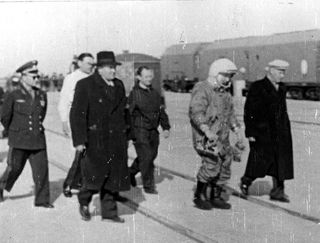
Starting the space program
Stalin, however, was in need of aeronautical engineers as World War II began. Korolev and other people like him were allowed to work from jail, according to NASA ; Korolev was identified by Sergei Tupolev (a famous aircraft designer who was jailed himself), who asked for Korolev's help on his projects.
While still a political prisoner, Korolev was sent to Germany to inspect what was left of the Nazi regime's missile operations (after the United States had taken most of the best elements). Once Korolev was freed from jail after the war's end in 1945, he was put in charge of designing a Soviet equivalent of the V2 rocket. The result was the first intercontinental ballistic missile, known as the R7. Korolev's other work was put into a design bureau, the first of many that worked on Korolev's technology once he had developed it, according to NASA.
While few people remember the R7 today, everyone in the space world knows of Sputnik 1, which launched on Oct. 4, 1957, aboard an R7. This was the first human-made satellite, and it took the world by surprise because the Soviet Union was still considered by some to be technologically inferior.
The United States, which was already working on a satellite on its own for the International Geophysical Year, attempted to speed up its attempts to launch something into space. The first U.S. satellite, however, did not fly until January 1958.

The Space Race
Throughout the 1960s, the United States and the Soviet Union competed in space, with the Soviet Union at first taking a strong lead in terms of racking up space firsts. Yuri Gagarin was the first human to fly in space on April 12, 1961, while the United States launched its first astronaut, Alan Shepard, in early May.
The Soviet Union also accomplished the first spacewalk (by Alexei Leonov). Under Korolev, the country also did surveillance of the moon with Lunas 1, 2 and 3. This was important because both the United States and the Soviet Union were thinking about landing humans there as an ultimate proclamation of who was superior in space.
While the United States worked on its famed Saturn V rocket that eventually hefted Apollo 11 and its crew into Earth orbit in 1969 — on the way to landing on the moon – Korolev's team worked on the N-1 launch vehicle starting in 1962. The heavy-lift rocket stayed in development for a decade, but never had a successful flight; its launch attempts included a huge explosion in 1969.
Korolev himself, however, did not live to see humans land on the moon. In 1965 he was diagnosed with cancer, and he died on Jan. 14, 1966, during surgery on his colon. Two weeks later, Luna 9 landed on the moon.
Additional resource
- ESA: Sergei Korolev: Father of the Soviet Union’s success in space
Join our Space Forums to keep talking space on the latest missions, night sky and more! And if you have a news tip, correction or comment, let us know at: [email protected].
Get the Space.com Newsletter
Breaking space news, the latest updates on rocket launches, skywatching events and more!

Elizabeth Howell (she/her), Ph.D., is a staff writer in the spaceflight channel since 2022 covering diversity, education and gaming as well. She was contributing writer for Space.com for 10 years before joining full-time. Elizabeth's reporting includes multiple exclusives with the White House and Office of the Vice-President of the United States, an exclusive conversation with aspiring space tourist (and NSYNC bassist) Lance Bass, speaking several times with the International Space Station, witnessing five human spaceflight launches on two continents, flying parabolic, working inside a spacesuit, and participating in a simulated Mars mission. Her latest book, " Why Am I Taller ?", is co-written with astronaut Dave Williams. Elizabeth holds a Ph.D. and M.Sc. in Space Studies from the University of North Dakota, a Bachelor of Journalism from Canada's Carleton University and a Bachelor of History from Canada's Athabasca University. Elizabeth is also a post-secondary instructor in communications and science at several institutions since 2015; her experience includes developing and teaching an astronomy course at Canada's Algonquin College (with Indigenous content as well) to more than 1,000 students since 2020. Elizabeth first got interested in space after watching the movie Apollo 13 in 1996, and still wants to be an astronaut someday. Mastodon: https://qoto.org/@howellspace
Building rockets and looking for life on Venus: Q&A with Rocket Lab's Peter Beck
SpaceX launches 23 Starlink satellites, aces 300th rocket landing (photos, video)
Watch China launch 3 astronauts to Tiangong space station today
Most Popular
- 2 Buried in the Cat's Paw Nebula lies one of the largest space molecules ever seen
- 3 Netflix releases official trailer for Jennifer Lopez mech combat sci-fi film 'Atlas' (video)
- 4 Ancient rocks hold proof of Earth's magnetic field. Here's why that's puzzling
- 5 Hubble telescope celebrates 34th anniversary with an iridescent Dumbbell Nebula (image)
- International
April 22, 2024 - Protests at Columbia and other schools escalate
Matt Egan, Alicia Wallace and Chandelis Duster
The Massachusetts Institute of Technology says it is 'determining next steps'
From CNN's Jillian Sykes
The Massachusetts Institute of Technology issued a statement Monday regarding tents on its campus.
"MIT officials are aware of the tents, and are determining next steps with a focus on ensuring campus is physically safe and fully functioning. MIT Police were on scene throughout the night and will continue to be present."
Robert Kraft says he is willing to support The Kraft Center at the university
From CNN's Chandelis Duster
Robert Kraft, billionaire owner of the NFL’s New England Patriots and backer of Columbia University, on Monday said he is still willing to support The Kraft Center at the school that supports Jewish students, calling it “a haven of safety.”
Kraft, an alumnus of the university, told CNN’s Jake Tapper on “The Lead” that he loves the school and “we have to have accountability.”
“There are both professors and students within the university who say things that I think cross the line and there should be accountability. I believe in free speech. Say whatever you want but pay the consequences. And don't have your face covered. I don't think that should be allowed,” he said.
“I can’t believe in New York City at Columbia University Jewish students are afraid to go to classes in the United States of America in 2024. It’s amazing to me and horrible,” Kraft also said.
Asked where he drew the line at Columbia University regarding both pro-Palestine and pro-Israel protests and what he finds objectionable, he said “there is a lack of education on the situation” happening in the Middle East.
“I’m concerned about America and what’s going on in this country. And to keep it open and free for all people of all backgrounds to do as they wish,” he said.
Asked if he has confidence in Columbia University’s president, Minouche Shafik, he said he thinks she is “very well intentioned” and said “we have to look at what goes on with faculty.”
Columbia faculty stage walk-out in solidarity with students
From CNN's John Towfighi
Hundreds of people gathered on Low Plaza Monday afternoon as Columbia University faculty delivered speeches in support of the student protesters who were suspended and arrested Thursday.
Faculty who spoke denounced university president Minouche Shafik’s decision to authorize the New York Police Department to remove protesters from campus and demanded all legal and disciplinary charges be dismissed and expunged from students' records.
Faculty held signs that read, “Hands off our students,” and “End student suspensions now.” Some faculty donned their academic regalia and wore sashes that read, “We support students.”
Speeches were met with cheers and claps from the crowd, as well as chants for Shafik to resign.
Christopher Brown, a professor of history, said, “I’m here because I am so concerned about what is happening at this university, with where we are now and with where we are going. Thursday April 18, 2024, will be remembered as a shameful day in Columbia history.”
“The president’s decision to send riot police to pick up peaceful protesters on our campus was unprecedented, unjustified, disproportionate, divisive and dangerous,” Brown said.
US Rep. Ilhan Omar, whose daughter Isra Hirsi was among the protesters arrested Thursday , posted on X that while she’s glad to see faculty demonstrate in solidarity with students, she wants the protests to focus on Gaza.
"On Thursday, Columbia arrested and suspended its students who were peacefully protesting and have now ignited a nationwide Gaza Solidarity movement. This is more than the students hoped for and I am glad to see this type of solidarity. But to be clear, this about the genocide in Gaza and the attention has to remain on that," Omar wrote.
NYC Mayor condemns "vile" and "disgusting" rhetoric at college campuses
From CNN's Alicia Wallace
New York City Mayor Eric Adams on Monday condemned “vile” and “disgusting” rhetoric being used at campuses such as Columbia University, where students are holding protests over the Israel-Hamas War.
Adams told CNN’s Jake Tapper that he supports First Amendment rights but said law enforcement officials are on the ready if any of that speech goes too far or if there’s an imminent threat to people or property.
"That is one of the fundamental rights we hold dear as Americans: The right to protest," Adams said on CNN's "The Lead." "What we have seen playing out on many of our college campuses, and particularly Columbia University, is hate. We’re seeing vile language being used."
Adams noted that he can feel the "duality of this moment" and how the events of the past six months are weighing heavily on Jewish and Palestinian New Yorkers. He added that the police escorts of Jewish students through campus were reminiscent of the Army soldiers who escorted nine Black students into a high school in Little Rock, Arkansas, nearly 67 years ago.
"There is no place for hate in this city," he said.
New York Police Department officers have a “large presence” surrounding Columbia but have remained off the campus grounds at the request of the school’s administration, NYPD deputy commissioners said earlier on Monday.
Adams told Tapper that the NYPD’s commissioner of legal matter is monitoring the protests for any speech that violates law. Additionally, police officers will take "appropriate action" and go on private property if there’s an "imminent threat."
Protesters gather at The New School in New York City
From CNN's Elisabeth Buchwald

Protesters have gathered at The New School, located near the Chelsea area of the New York City borough of Manhattan.
An encampment of four tents was set up in the lobby of the building that houses auditoriums, a cafeteria and a library. Roughly 75 students, and other people who have The New School IDs, gathered inside the building.
"Disclose, divest, we will not stop, we will not stop, we will not rest," was repeatedly chanted.
Outside the building, protesters from the school, as well as outsiders, joined in chants from the sidewalk.
There is a stark difference between the inside and outside of Columbia University's campus
From CNN's Ramishah Maruf
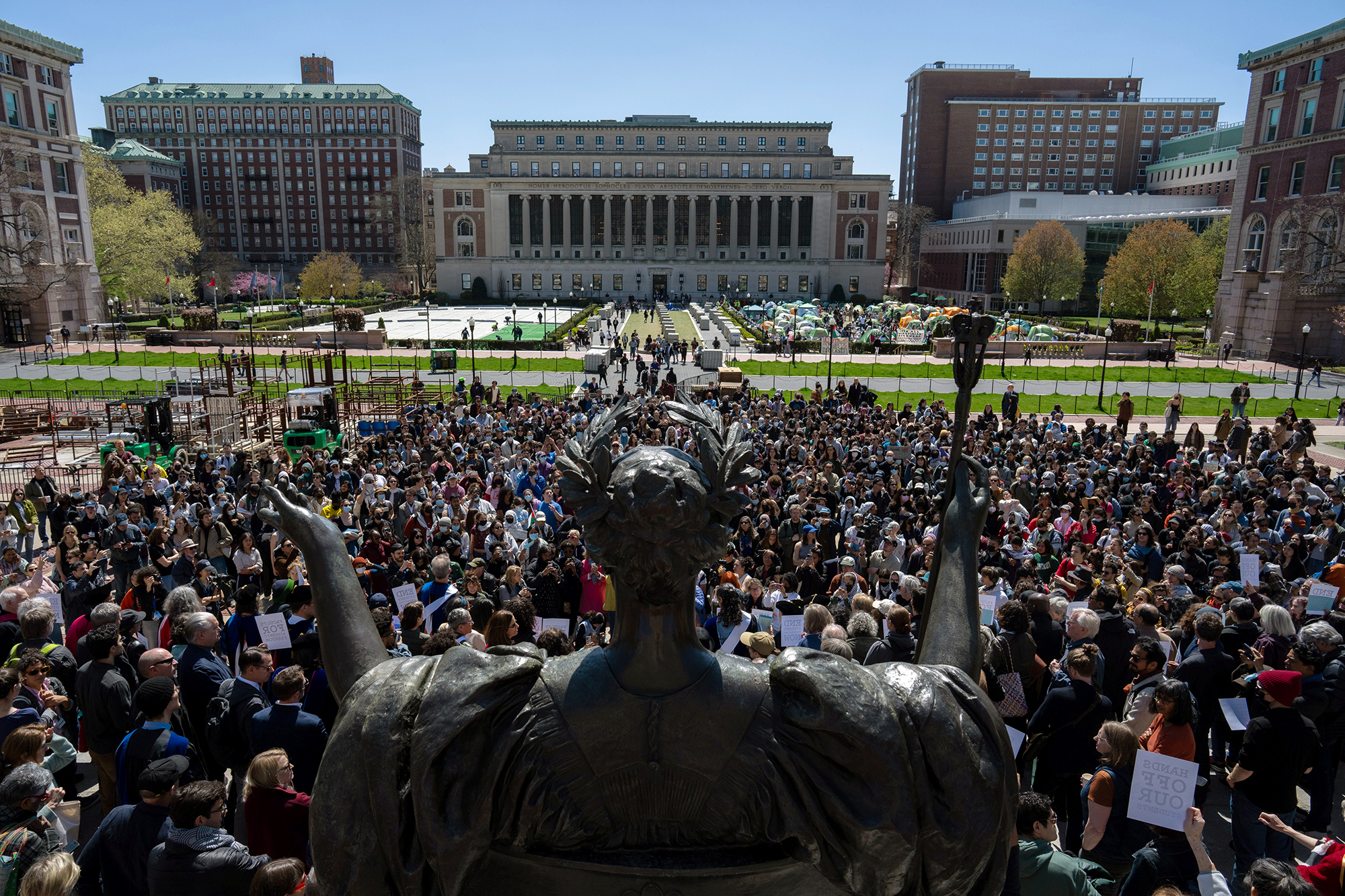
There’s a stark difference between the inside of Columbia University's campus and the outside, where there are protesters gathered on the street.
The encampment is only open to those affiliated with campus. Only those with a Columbia ID can enter the campus gates. Inside the encampment, programs include teach-ins, poetry readings and film screenings. Some students are quietly finishing assignments, while others are painting posters.
Elsewhere around campus, students are eating and completing assignments. Many students take graduation pictures at this time, and some are in graduation gowns walking down Broadway. Risers are set up for an upcoming commencement ceremony.
Other students are holding large American flags underneath Butler Library.

But the students can still hear the tension that is taking place yards away at the university gates. There is a gathering of pro-Palestinian protesters, who in the early afternoon were chanting “I believe that we will win” and “Long Live the Intifada.” There was a smaller group of pro-Israeli protesters, who chanted back “Down with Hamas” and “Victory to Israel.” A line of New York Police officers were monitoring the street.
What it's like inside the Columbia University encampment

The inside of the encampment is quiet – most of the noise comes from protestors outside the gates of Columbia University's campus, who are chanting “I believe that we will win” and “Long live the Intifada."
It was a sunny day on campus, and in one corner, students were painting posters. One person strummed a stringed instrument, and other students are reading books or on their laptops finishing assignments. Others have donated provisions, ranging from a table of snacks to hygiene products. There was also a pile of blankets.
“We’ve just been trying to keep students mobilized and keep pushing for divestment,” Dalia, a first-year student at Columbia College, told CNN. “We are a very mobilized student body and a very unified student body. Hundreds of people have been in and out of the encampment.”
CNN agreed not to publish her surname due to safety concerns.
She said the students at the campus “refuse to be complicit in the genocide, the apartheid, and the occupation of Palestine.”
There are strict community guidelines for the encampment. One rule says not to share names or details of anyone met in camp, and asking for permission before photographing or taking video.
The encampment is filled with dozens and dozens of tents, from students to neighboring Barnard College staff. Today’s encampment program included an Earth Day performance, poetry reading and a Dabka lesson, a traditional dance from the Arab region. Prior program events included dance performances from different cultures.
Democratic House members tour Columbia campus
Democratic Reps. Jared Moskowitz of Florida, Josh Gottheimer of New Jersey, Dan Goldman of New York and Kathy Manning of North Carolina, who are all Jewish, spoke at a news conference Monday after touring Columbia University’s campus.
"We saw it firsthand as we walked past the encampments on the university's main lawn full of protesters spewing incendiary antisemitic hate and vitriol. Many aren't even Columbia students I've been told. Their campaign of intimidation is sickening and shocking and as the White House said yesterday, ‘echoes the rhetoric of Hamas terrorists,'" Gottheimer said.
He also criticized Columbia University leadership, saying, “toothless combinations from administrators aren't going to stop the anarchy we’re seeing.”
“The only way to do it is with deeds, not words,” Gottheimer said. “Colleges have a legal obligation under Title VI of the Civil Rights Act to provide students, including Jews and Muslims, a school environment free from discrimination and harassment based on race color or national origin. Yet just feet from here, Jewish students are being verbally and even physically assaulted.”
Gottheimer continued, “To the administrators of Columbia and beyond, here are our demands: Stop the double talk and start acting now. Discipline harassers, restore civility on this campus, encourage peaceful constructive dialogue.”
He also gave a message for students: “While the leadership of Columbia may be failing you, we will not. We will do everything in our power to keep you safe and do everything in Washington we can to make sure that you feel welcome at this university or any university across the United States of America. And Columbia University, if they don't follow through, will pay the price.”
Goldman said he was "encouraged" the Columbia University president issued guidelines about additional security, calling it a "very important first step" and criticized what is happening on campus.
"That is unacceptable for a university, that is unacceptable for an academic institution. There is no question that everyone has a First Amendment right to speak out in this country and that must be preserved," Goldman said. "But a university and all universities have an obligation to maintain the safety and security of their students from all backgrounds."
Manning said university leadership should "do more to keep Jewish students safe and to re-establish an atmosphere in which all students can learn, study and participate safely in campus life."
"Columbia must also move forward with its promised efforts to teach its students and its faculty about the nature and history and dangers of antisemitism. It must ensure that Columbia professors are not encouraging and spreading antisemitism," Manning said.
"I call on the US Department of Education and the US Department of Justice to work with the White House to ensure that all universities take steps necessary to keep Jewish students and faculty safe. I also call on Congress to enact legislation to implement the steps outlined in the US national strategy to counter antisemitism, to address the scourge of antisemitism which is a threat to the foundations of our democracy," she said.
President Joe Biden condemns antisemitism on campus
From CNN's Kevin Liptak
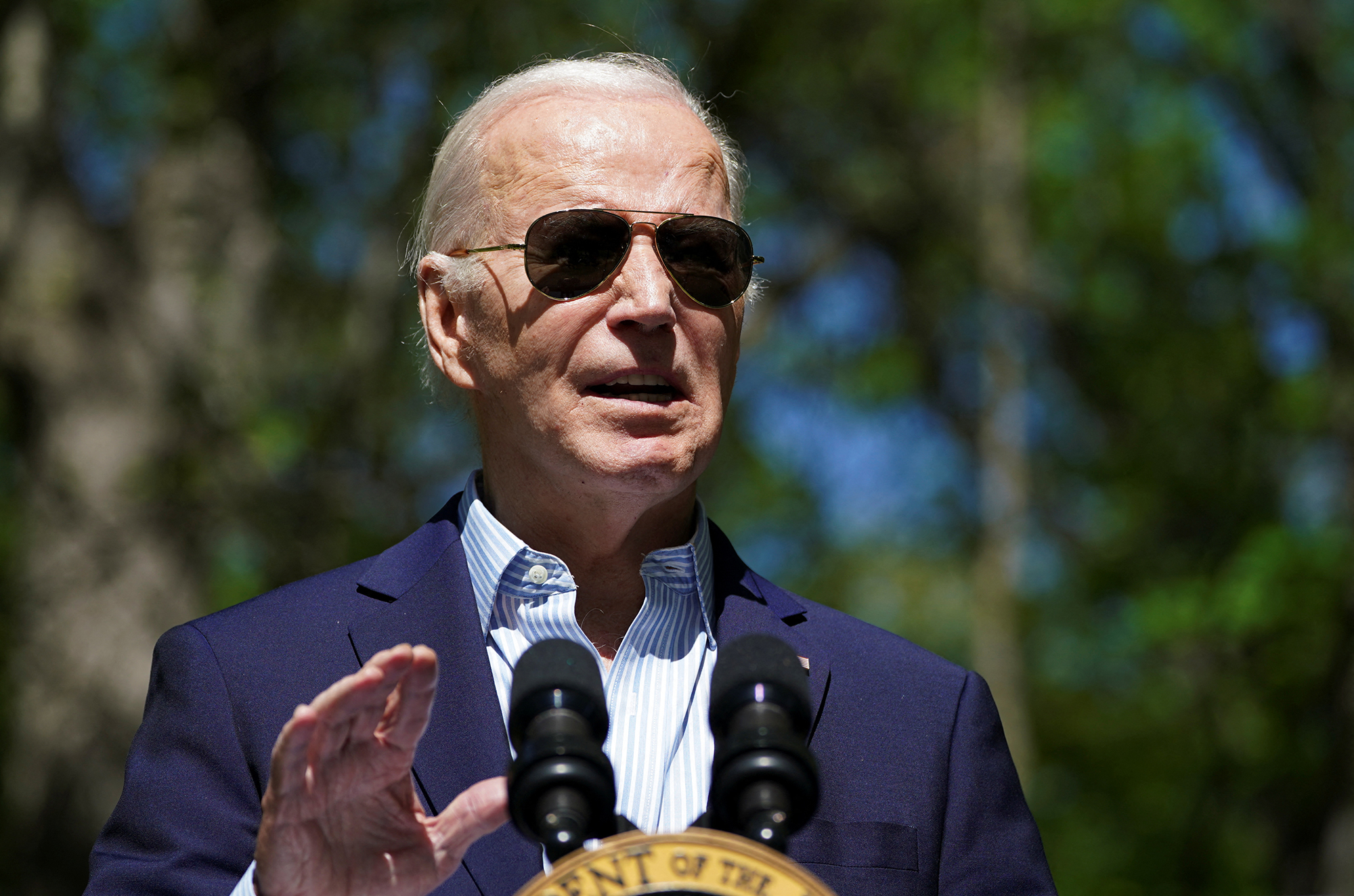
President Joe Biden decried antisemitic protests around college campuses Monday and said his administration was working to combat anti-Jewish hatred.
"I condemn the antisemitic protests, that’s why I’ve set up a program to deal with that," Biden said when questioned about the events at Columbia University in New York.
"I also condemn those who don’t understand what’s going on with the Palestinians," he said, without expanding upon what he meant.
Biden was speaking after an Earth Day event in Prince William Forest Park in Triangle, Virginia.
When asked whether Columbia's president should resign, Biden appeared to mishear: "I didn’t know that. I'll have to find out more," he said.
Please enable JavaScript for a better experience.
- Bahasa Indonesia
- Slovenščina
- Science & Tech
- Russian Kitchen
Sergei Korolev: 7 great achievements of the man who sent Gagarin to space

1. Pilot and constructor
Korolev can easily be called a wunderkind because he realized his first successful developments while still in school. At the age of 17 he presented his engineless airplane. At university (in 1926 Korolev transferred from the Kiev Polytechnic Institute to the famous Bauman Moscow State Technical University) he designed the first glider in the USSR, which was supposed to be used for performing intricate aerobatics, including the dead loop. Soviet flying ace Vasily Stepanchonok eventually carried out the flight successfully. Korolev, who was a certified pilot, was unable to execute the flight due to an illness.
2. Tsiolkovsky and rocket technology
After his first meeting with the pioneer of astronautic theory Konstantin Tsiolkovsky at his home in Kaluga, Korolev's interest shifted to reactive movement. In the 1930s, together with his associates Korolev founded the Group for Studying Reactive Movement (GSRM), which then evolved into the Reactive Scientific-Research Institute.
Under Korolev's supervision the first Soviet liquid-ballistic missiles and anti-aircraft and long-range winged missiles were created. Long-range aviation missiles and anti-aircraft solid-fuel missiles were also developed. On June 27, 1938 Korolev was arrested for mismanagement of funds.
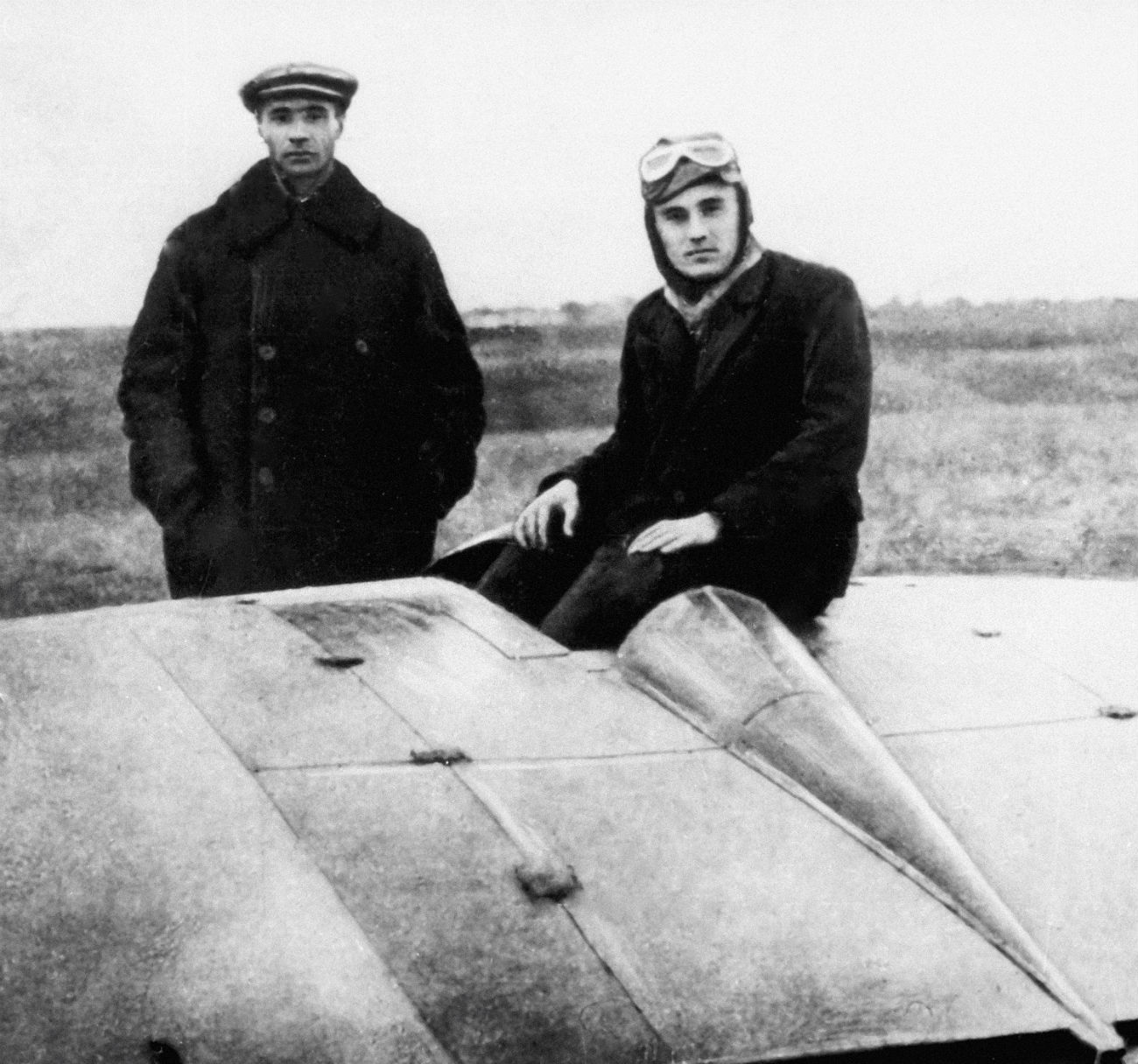
3. Bombers in a prison design bureau
Sentenced to 10 years in labor camps, Korolev was sent to Kolyma and Vladivostok, but in the summer of 1940 was retried and after the second verdict (an eight-year sentence) was sent to the special NKVD Central Design Bureau-29 (CDB-29) in Moscow. It was headed by four constructors, who were also prisoners, including Andrei Tupolev, the famous aviation constructor and Korolev's former supervisor at the Bauman University. It was in the CDB-29 that the best Soviet bomber (from the viewpoint of technical characteristics), the Tu-2, and the most mass-produced bomber, the Pe-2 dive-bomber, were created. In 1942 Korolev was transferred to Kazan, where he continued working on rocket engines.
4. Ballistic missiles
Two years later, by order of Joseph Stalin's decree, Korolev was released without completing his sentence and his charges were dropped. In 1946 he was appointed chief constructor of the Special Design Bureau-1 (SDB-1) in a small Moscow suburb called Kaliningrad (now it’s called Korolev). The bureau's main objective was to create an equivalent of the German V-2 and since all the blueprints had been lost, the calculations had to be done from scratch.
In 1948 the first test flights of the R-1 took place. However, Korolev was simultaneously involved in the development of several generations of missiles. In 1954 Korolev's construction bureau produced the R-5, the first ballistic missile with a nuclear charge, and two years later it constructed the R-7, the first intercontinental two-stage ballistic missile, which was capable of delivering a nuclear warhead to practically any point on the planet. It was this missile that presented the opportunity to conquer space and became the basis for all of today's rocket carriers.
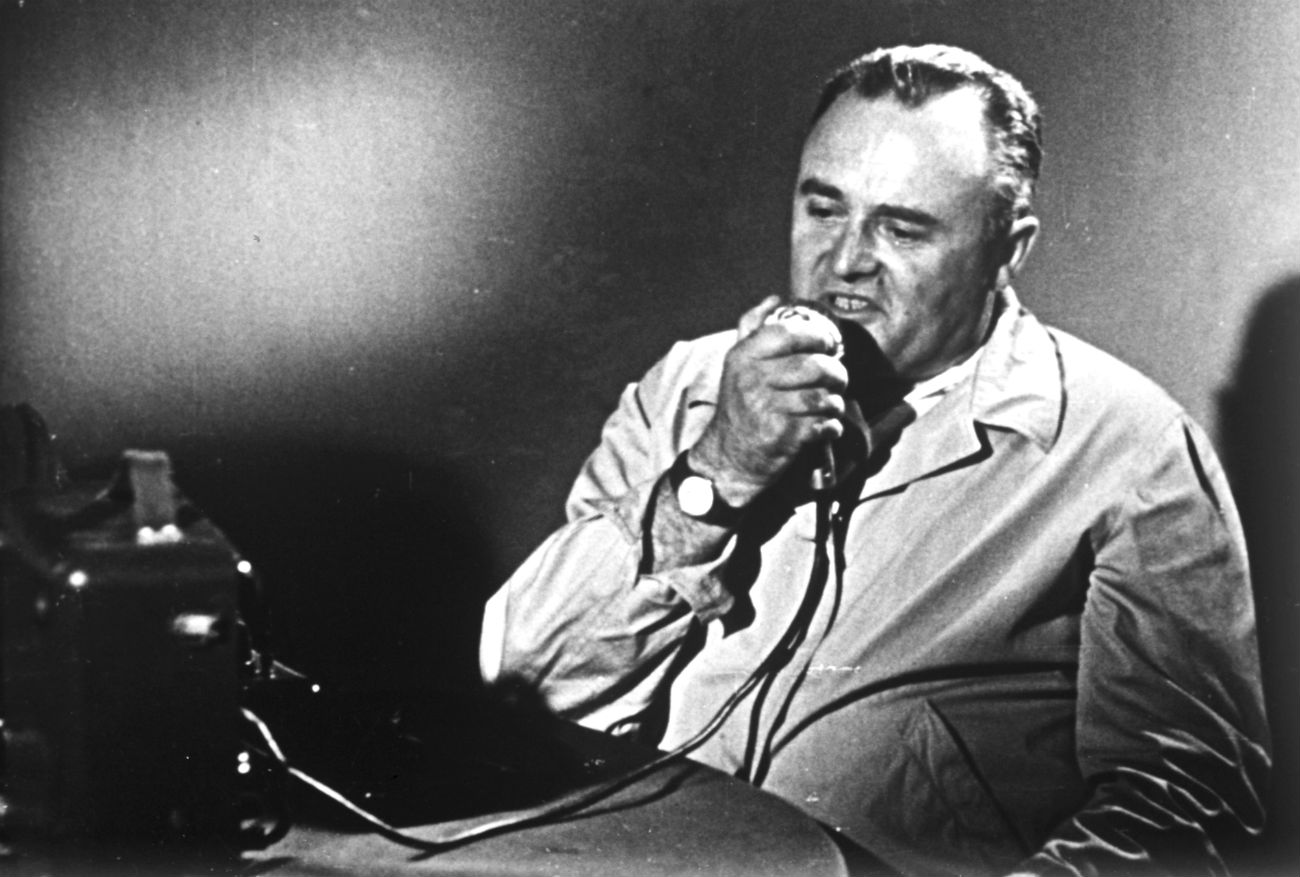
Before the R-7 flight tests, a group of constructors from Korolev's design bureau proposed sending an artificial Earth satellite to space and the authorities accepted the proposal. Based on the combat missile Korolev developed the system of three and four-stage carriers. On Oct. 4, 1957 the first artificial Earth satellite called Sputnik-1 (in Russian “sputnik” means satellite) was launched into orbit. Two years later the automatic Luna-2 station became the first manmade object to conduct a space flight, waving the Soviet banner above the Earth.
6. The first space flights
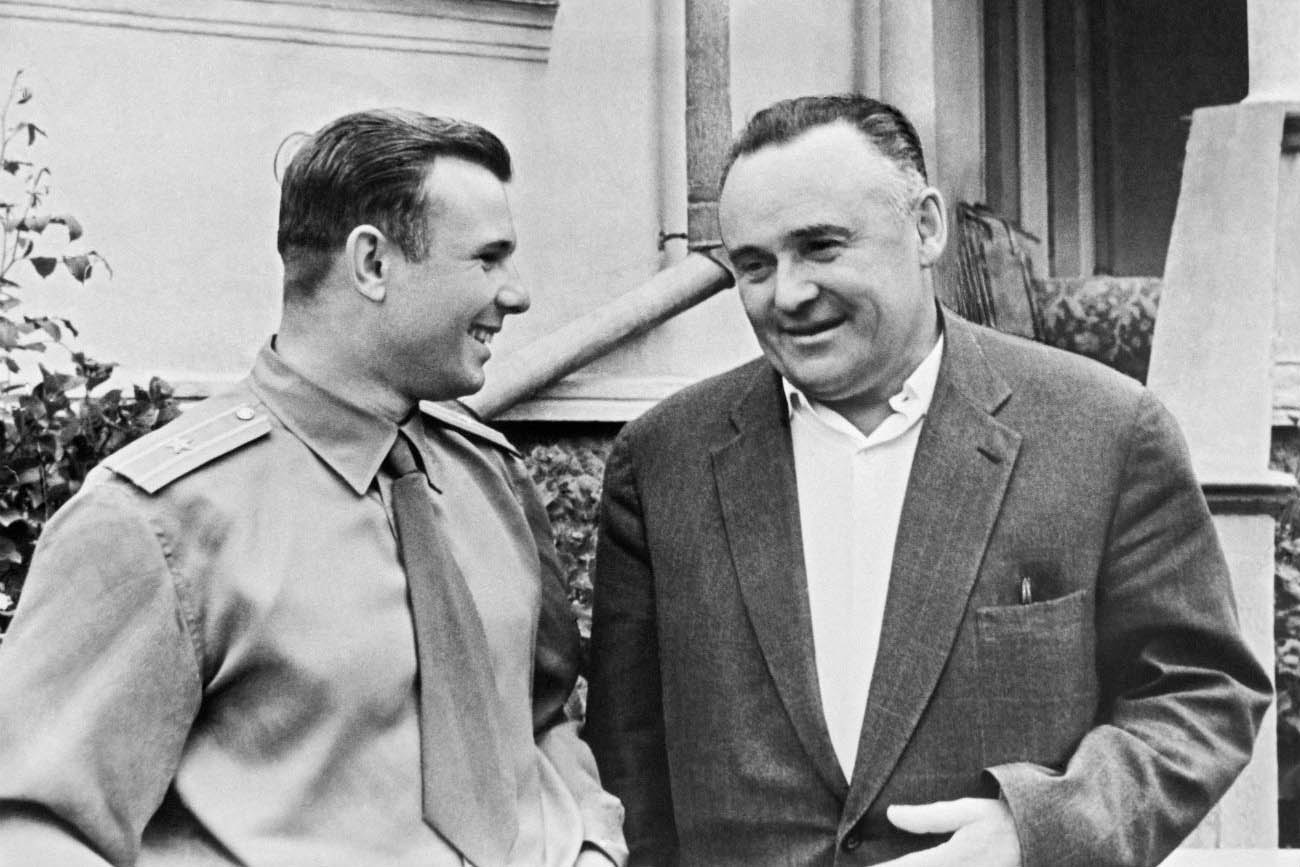
Hero of the Soviet Union Yuri Gagarin (L) and Academician Sergei Korolev, on Feb. 5 1961.
Korolev's energy was inexhaustible and in the first half of the 1960s under his supervision the USSR made many breakthroughs in space. On April 12, 1961 Yuri Gagarin became the first person in space, in 1962 a joint flight of the Vostok-3 and Vostok-4 spaceships took place and in 1963 Valentina Tereshkova became the first woman in space (afterwards, only three other women would fly to space in the USSR and Russia). In 1964 the USSR launched a new spaceship, the Voskhod, and for the first time there was a multi-member crew, made up of three people. Finally, on March 18, 1965 Alexei Leonov became the first cosmonaut to conduct a spacewalk.
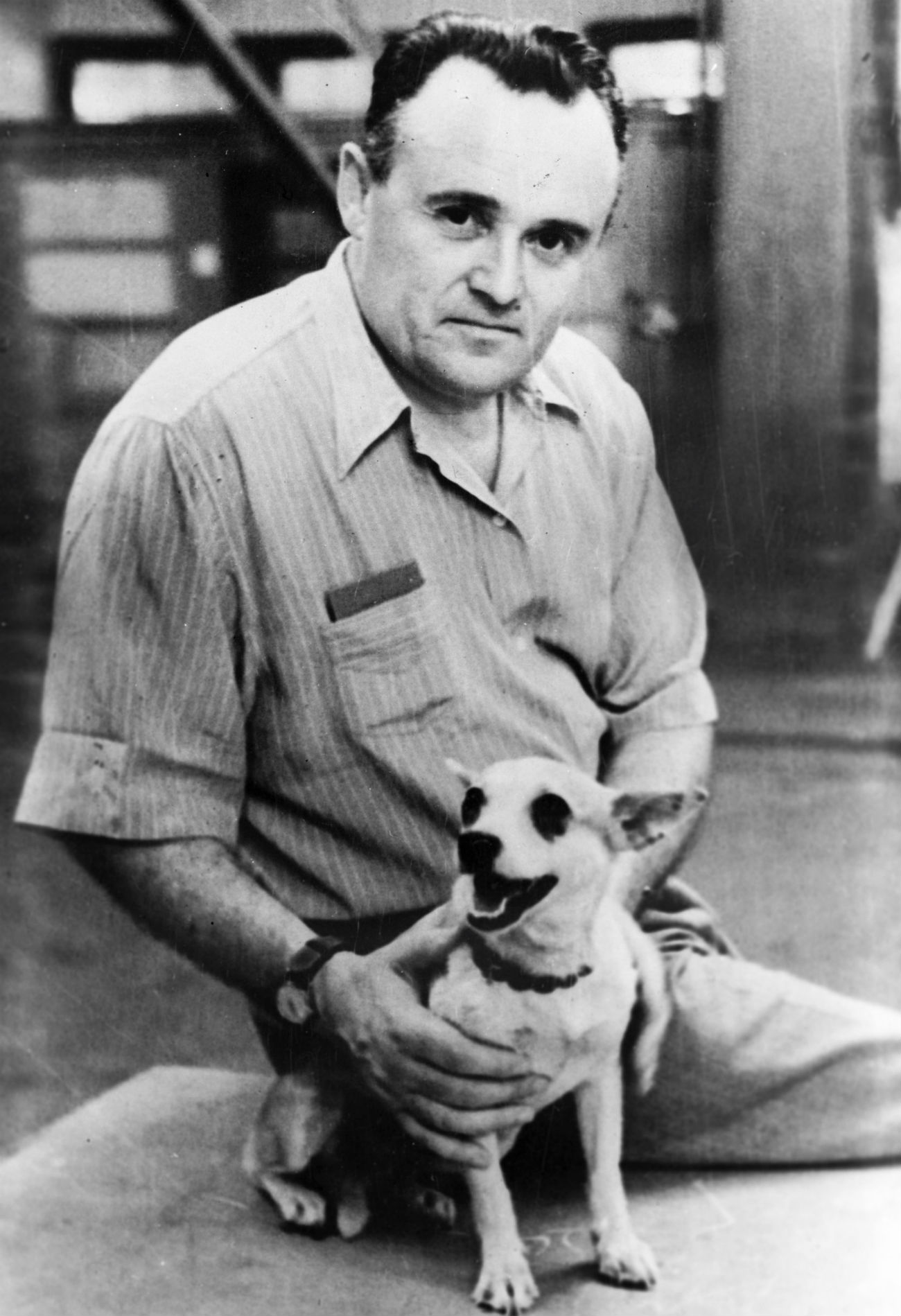
7. Orbital station projects and landing on the moon
Perhaps, had circumstances been different, Alexei Leonov would have been the first Soviet cosmonaut to land on the moon (such was his role in the piloted moon program). However, without single leadership the development went slowly. In 1966 Korolev died from an illness and several years later Brezhnev canceled the program. Another of Korolev’s idea, which occupied him in his last years, was to build an orbital station where cosmonauts would live and work for a long time without spacesuits. A step in this direction became the creation of the Soyuz spaceship, which included a living compartment. Unfortunately, Korolev did not live to see the spaceship's first launch in 1967.
QUIZ: 10 simple space flight questions that are difficult to answer
If using any of Russia Beyond's content, partly or in full, always provide an active hyperlink to the original material.
to our newsletter!
Get the week's best stories straight to your inbox
This website uses cookies. Click here to find out more.

Biden officials indefinitely postpone ban on…
Share this:.
- Click to share on Facebook (Opens in new window)
- Click to share on X (Opens in new window)
Daily e-Edition
Evening e-Edition
- Entertainment
- Restaurants, Food & Drink
News National News
Biden officials indefinitely postpone ban on menthol cigarettes amid election-year pushback.

Sunshine and dry weather forecast for Central Florida on Saturday

SUBSCRIBER ONLY
Science | spacex lines up pair of space coast launches for the weekend.

Pictures: Pro-Palestine demonstrators protest at UCF

UCF students rally for Palestinians, the latest in nationwide campus divestment protests
We couldn’t find any results matching your search.
Please try using other words for your search or explore other sections of the website for relevant information.
We’re sorry, we are currently experiencing some issues, please try again later.
Our team is working diligently to resolve the issue. Thank you for your patience and understanding.
News & Insights

Airlines Must Give Cash Refunds, Disclose Fees Under New Rules. Do You Still Need Travel Insurance?

April 26, 2024 — 11:27 am EDT
Written by Dawn Nici for Forbes Advisor ->
Airline passengers will soon be entitled to automatic cash refunds when their flights are canceled or significantly disrupted. A final rule just issued by the Department of Transportation requires airlines to issue cash refunds to customers—without being asked—unless passengers agree to accept travel credit or alternative transportation instead.
The department has officially defined “significantly changed flights” for all carriers to include flights that:
- Delay arrival or departure by three hours (for domestic flights) or six hours (for international flights)
- Require a change of departure or arrival airport
- Increase a passenger’s number of connections
- Downgrade a passenger’s class of service
- Switch to a connecting airport or plane that is less accessible to a passenger with a disability
When the rule takes effect in October, airlines will also have to refund fees for checked bags that arrive late by 12 hours or more (15 to 30 hours for international flights) and for services that were paid for but not delivered, such as in-flight Wi-Fi or entertainment.
Refunds must be provided within seven to 20 days. Airlines must pay customers in cash or by crediting the original payment method, such as a credit card or airline miles .
“Passengers deserve to get their money back when an airline owes them—without headaches or haggling,” Transportation Secretary Pete Buttigieg said in a news release.
Airlines Must Disclose ‘Junk’ Fees
Another final DOT rule aimed at so-called junk fees prohibits airlines from springing surprises on ticket buyers at checkout.
Airlines and ticket agents will have to disclose upfront their fees for such things as checked or carry-on luggage or for changing or canceling a reservation. They must also outline the airline’s baggage, change and cancellation policies before a passenger buys their ticket.
Airlines contend they are already transparent about their charges.
“U.S. airlines are committed to providing the highest quality of service, which includes clarity regarding prices, fees and ticket terms,” said the trade group Airlines for America in a statement.
Do Passengers Still Need Travel Insurance?
The new airline rules cover costs and fees that are refundable. For nonrefundable costs, travel insurance still makes sense. Travel insurance also can cover you for emergency medical care and evacuation during your trip.
The average cost of a travel insurance plan is $308, according to travel insurance comparison site Squaremouth. But the average claim payment last year was about $1,900.
“Cancel for any reason” travel insurance , typically offered as an add-on, will cover you if you scrap your trip for a reason not listed in your basic travel insurance policy. It will reimburse you for some or most of your nonrefundable costs, but it still comes with some restrictions—and it can add about 50% to the cost of your insurance.
More From Advisor
- Is Airbnb Travel Insurance Worth It?
- Starr Travel Insurance Review 2024
- Battleface Travel Insurance Review 2024
The views and opinions expressed herein are the views and opinions of the author and do not necessarily reflect those of Nasdaq, Inc.

More Related Articles
This data feed is not available at this time.
Sign up for the TradeTalks newsletter to receive your weekly dose of trading news, trends and education. Delivered Wednesdays.
To add symbols:
- Type a symbol or company name. When the symbol you want to add appears, add it to My Quotes by selecting it and pressing Enter/Return.
- Copy and paste multiple symbols separated by spaces.
These symbols will be available throughout the site during your session.
Your symbols have been updated
Edit watchlist.
- Type a symbol or company name. When the symbol you want to add appears, add it to Watchlist by selecting it and pressing Enter/Return.
Opt in to Smart Portfolio
Smart Portfolio is supported by our partner TipRanks. By connecting my portfolio to TipRanks Smart Portfolio I agree to their Terms of Use .

IMAGES
VIDEO
COMMENTS
Travel & Education is an organization that offers a variety of Short-Term and Long-Term Study Abroad Programs for students and faculty. T&E is grounded in academic institutions that represent world-renowned universities, and offers the most value for your dollar. Recent Reviews.
In today's interconnected world, education extends beyond the boundaries of the traditional classroom. As an educator, I have witnessed the immense value that educational travel and learning journeys bring to students' lives. The opportunity to embark on cultural immersion programs, study abroad experiences, and academic adventures allows students to broaden their horizons, deepen their ...
The Educational Benefits of Travel. With her company Voyaj, master's student Yasmine El Baggari is breaking down barriers and fostering global connections for a more peaceful world. Master's student Yasmine El Baggari has been to all 50 states.
6 essential ways travel promotes learning and education. 1. It broadens your horizons through cultural immersion. Nothing compares to the experience of being fully immersed in a country and its culture. International travel should be about more than tourism and site-seeing. A trip abroad is an opportunity to witness and participate in life in ...
Not-for-profit creator of experiential travel opportunities all over the world for age 50+ Group or solo packages include lodging, meals, & expert-guided educational tours. Educational Adventures. 2023 & 2024 Enrolling Now. Non-Profit Organization.
Learning outcomes have been found from the travel portion of the study experience, and some research has found that out-of-class experiences were the most impactful portion of study abroad. Personal growth, increase in life skills, and knowledge also result from independent international travel, as well as "objectiveless" travel. A few ...
We bottled some of this event's magic in our student Summit video recap. He gives the best guided tours of Spain —and he inspired his family to become local guides, too. Hundreds of destinations. Endless possibilities. EF Educational Tours offers student tours at the lowest prices guaranteed. Learn why teachers and parents choose EF for ...
Not-for-profit Road Scholar is a university of the world and leader in educational travel for adults. Since its founding in 1975, Road Scholar has enrolled more than 5 million adults in its educational travel programs. It offers learning adventures in more than 150 countries, led by faculty who are experts in their fields of study.
Take education beyond the classroom. Our tours and educational experiences for students make learning immersive and fun. Exciting travel and career exploration opportunities spark aha moments and encourage the well-rounded growth of tomorrow's leaders. Teacher-Led Programs Programs for Students. WorldStrides Higher-Ed.
The best travel education programs provide a solid foundation for your student's professional achievement, too. Related: Parents of College Students Abroad: 5 Tips for a Better Experience. Developing Global Networks and Professional Connections. Travel provides students with an abundance of opportunities to broaden their international ...
Welcome to Teaching Traveling! Love learning about the world? Teaching Traveling offers expert advice on global education curriculum, enriching trip ideas, and educator travel grants.. I'm Lillie Marshall, a public school teacher who started this site in 2010. Teaching Traveling has had over 1.6 million pageviews since then, and I'm thrilled you're here to explore the globe with us, too!
The nature of educational travel is a developed school-based curriculum, which is an indispensable part of the travel market and provides a comprehensive and systematic framework for school education (Stone and Petrick, 2013). Educational travel was first implemented in Western countries, and it is divided into two types.
Sports travel for athletes, coaches, families, and spectators attending games, tournaments, and special events across the country. across the world. WorldStrides' educational travel programs offer adventure and unique experiences for students of all ages, in the US and abroad. Learn more.
Tips for Successful Traveling and Studying. Building an Appropriate Itinerary. Ensuring the Learning Process Allows for Traveling. Learning How They Can Manage Time Effectively. Securing an Excellent Internet Connection. Embarking on a Trip With Your Student. Final Thoughts on Travel and Study. Next Steps.
The four branches of this organization include: (1) teachers teaching teachers around the world; (2) assisting students in gaining education remotely, no matter their location; (3) students gaining education through travel; and (4) humanitarian assistance for educational systems that need additional help. Donate. Our Impact.
The first is university, college and school tourism, in which the tourist experience is secondary to formal learning and can be described as 'education first'. The second is edu-tourism, defined as general travel for education and known as 'tourist first' (Ritchie et al, 2003).
Travel and tourism education equips students with the knowledge and skills needed to navigate this dynamic and multi-faceted field. As the travel industry continues to grow and evolve, the demand for well-trained professionals is on the rise. This is where travel and tourism education comes in.
Travel, he said, was the best education. And he was right. Here are four ways traveling increases your wisdom: 1. It broadens your horizons. When you travel, it changes your perspective. Suddenly ...
Support Diversity & Cultural Awareness. Since 1999, Education Travel & Culture promotes cultural exchange programs. Our inbound program opportunities are for high school exchange students where they study in an American high school and live with a volunteer American family. Our outbound program offers students the chance to study and live in a ...
Apr 26, 2024, 6:20 AM PDT. The author, left, takes the train to high school every day. Courtesy of Teddy Almond & Drew Angerer/Getty Images. Four years ago, I started commuting to my high school ...
Hsu, a second-grade teacher at Cadwallader Elementary School in San Jose, didn't get her first passport until she was 23. Hsu's parents immigrated to the United States from Vietnam and the ...
Education: Kiev Polytechnic Institute Bauman Moscow State Technical University: Occupation(s) ... He had first proposed marriage to her in 1924, but she then declined so she might continue her higher education. In 1931, Korolev and space travel enthusiast Friedrich Zander participated in the creation of the Group for the Study of Reactive ...
Korolev, Sergei Pavlovitch (1906-1966), Russian spacecraft designer and headed the Vostok and Voskhod projects, as well as the early Zond and Cosmos series. His R-7 ICBM launched Sputnik 1 on ...
From CNN's Elisabeth Buchwald. The New School students and pro-Palestinian supporters rally outside The New School University Center building, Monday, April 22, 2024, in New York. Mary Altaffer/AP ...
Follow Russia Beyond on Twitter. World cosmonautics are still developing Korolev's ideas and without him the USSR's space triumphs would not have happened. 1. Pilot and constructor. Korolev can ...
Safety Tips for Bicyclists. Maintain control of your bicycle. Make sure your bicycle is the right size for you, and properly adjusted to fit you. California Vehicle Code (CVC) §21201 (a) Protect yourself. Wear a helmet. plus. CVC §21212. Be alert and obey all traffic laws.
President Joe Biden's administration is again delaying a sweeping plan to ban menthol cigarettes. The decision is certain to infuriate anti-smoking advocates but could avoid angering Black vo…
By Molly Higgins. April 22, 2024. Daryl Roth, Sian Leah Beilock, and Steven Roth Nicole Pereira. Broadway producer Daryl Roth and husband Steven Roth have donated $25 million to support the ...
The average cost of a travel insurance plan is $308, according to travel insurance comparison site Squaremouth. But the average claim payment last year was about $1,900.
But a bunch of Russian speaking civilians driving mom-cars below speed limit can travel pretty much anywhere. Specially after you voluntarily move hundreds of thousands of Ukrainians into your country and security is so lax that they can just walk out of the transit rail station before they get to their destination in Russia.